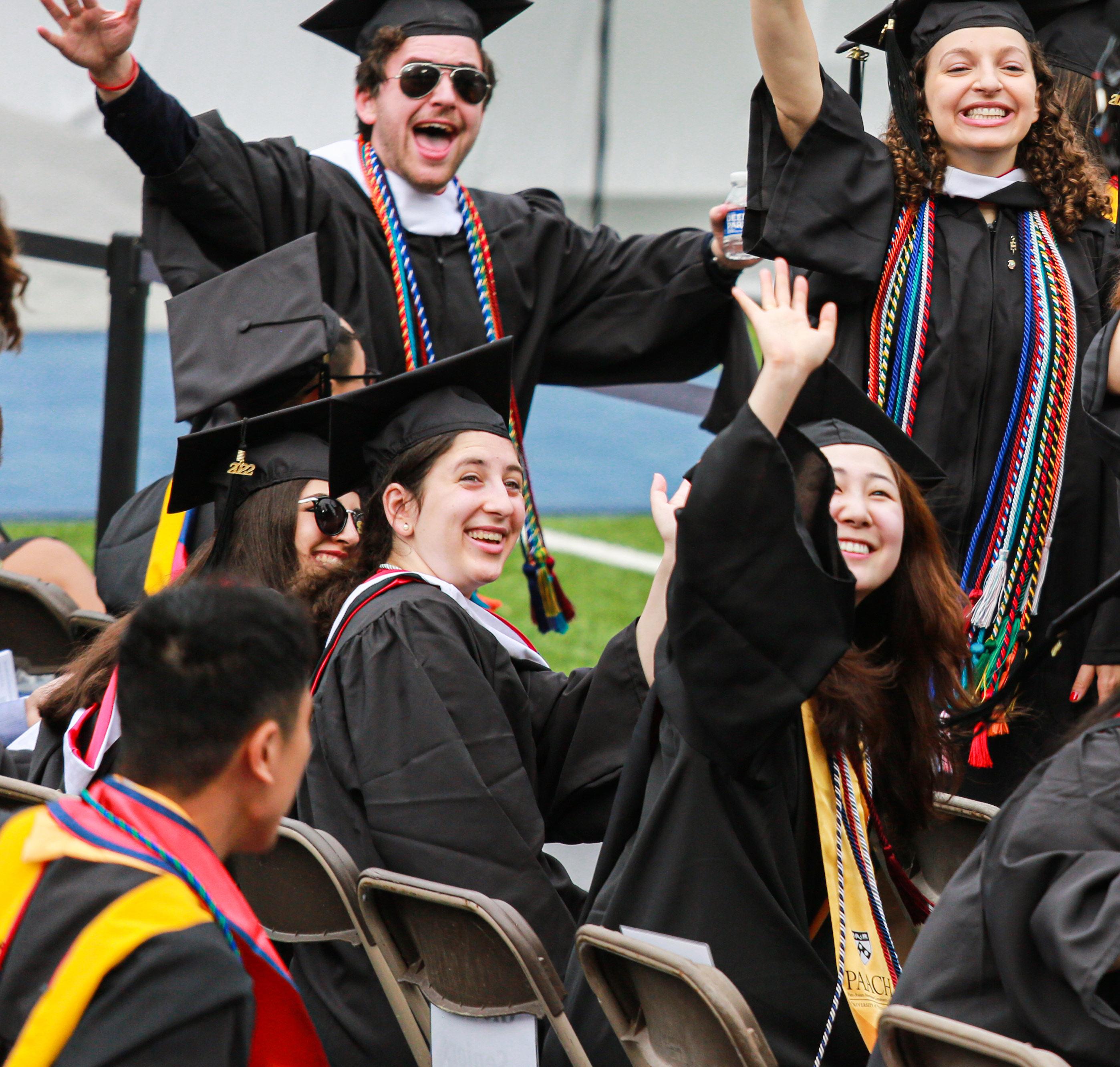
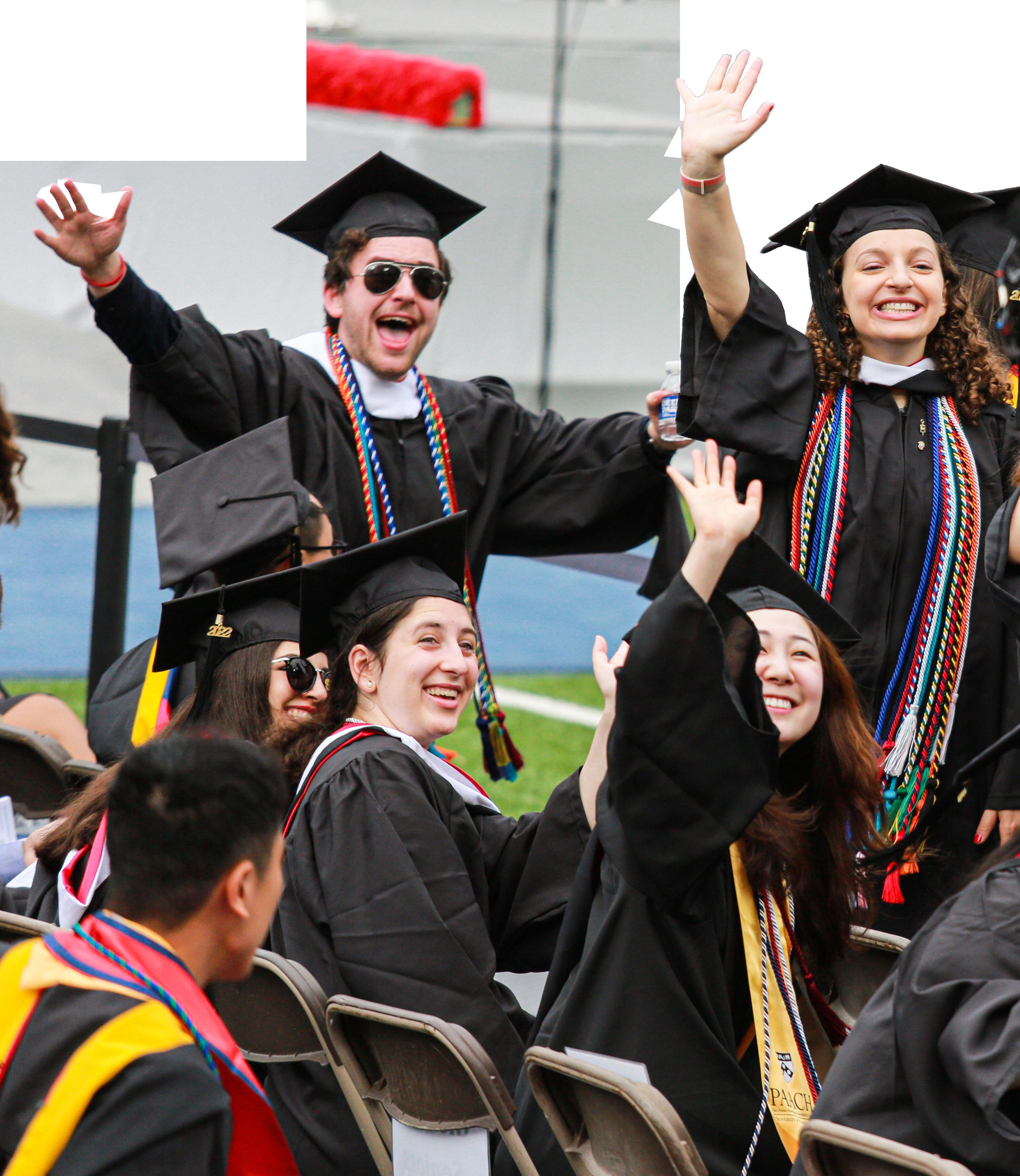

CONTACT US: 215-422-4640 SEND STORY IDEAS TO NEWSTIP@THEDP.COM ONLINE AT THEDP.COM THE INDEPENDENT STUDENT NEWSPAPER OF THE UNIVERSITY OF PENNSYLVANIA • FOUNDED 1885 PHILADELPHIA, FRIDAY, MAY 17, 2024 VOL. CXL NO. 15
CONGRATULATIONS CLASS OF 2024! Sunday - Thursday: 12pm-9:30pm Friday & Saturday: 12pm-10:30pm 3939 Chestnut Street (215) 921-5377 www.dimsum.house 1930 Chestnut Street (215) 563-8800 www.dimsum.house School of Engineering and Applied Science Undergraduate Ceremony The Palestra Wharton Undergraduate Ceremony The Palestra College of Arts and Sciences Undergraduate Ceremony Franklin Field School of Nursing Undergraduate Ceremony Kimmel Center University Commencement Ceremony Franklin Field Saturday, May 18 at 2 p.m. Sunday, May 19 at 9 a.m. Sunday, May 19 at 6:30 p.m. Monday, May 20 at 3 p.m. Monday, May 20 at 10:15 a.m.
JESSE ZHANG | DP FILE PHOTO
DIM SUM HOUSE
GRADUATION

2 NEWS FRIDAY, MAY 17, 2024 - GRADUATION ISSUE | THEDP.COM THE DAILY PENNSYLVANIAN
Here are five things to know about 2024 Commencement speaker
Siddhartha Mukherjee
Penn announced Siddhartha Mukherjee — who won the Pulitzer Prize for General Non- ction for “The Emperor of All Maladies” — as this year’s Commencement speaker on March 21
JESSICA
WU Senior Reporter
Scholarship is a prestigious international postgraduate award that allows students to study at the University of Oxford.
According to a 1992 news release from Stanford University, Mukherjee was a student researcher in the biological sciences, studying a gene that causes cancers in the immune system with Nobel laureate Paul Berg. Through the scholarship, Mukherjee went on to study immunology at Oxford’s Magdalen College, receiving a Ph.D. in 1997 for his thesis titled “The processing and presentation of viral antigens.”
2. His writing combines memoir with history and science
Mukherjee’s first book, “The Emperor of All Maladies,” originated from a journal he began keeping during his oncology fellowship at the Dana-Farber Cancer Institute. The “biography” of cancer — which won him a Pulitzer Prize in 2011 and is included among Time magazine’s 100 best nonfiction books of the century — combines the origin and history of the disease with Mukherjee’s own experiences of life and death.
The New York Times described his work as weaving “history and biology into a story about who we are.”
Mukherjee’s 2016 book, “The Gene,” discusses genetic research and his family’s history of mental illness.
“Madness has been among the Mukherjees for generations,” he wrote in “The Gene.”
3. He writes in bed
Mukherjee’s most recent book, “The Song of the Cell,” published in 2022, was likely written from his bed. Mukherjee told The Guardian in 2022 that he “famously” writes in bed, a habit for which people frequently make fun of him.
“But I love writing in a small place. I don’t have a writing studio or anything like that. I like to snuggle up with my computer,” he said.
When Mukherjee isn’t writing from bed, he is writing from a red suede couch in his office at the Columbia University Medical Center, where he is a professor of medicine and an oncologist. In his 2018 article in The Guardian, Mukherjee shared that he gets his writing done between patient appointments and conducting research at his blood cancer lab.
4. He co-founded four biotechnology and healthcare companies
Mukherjee is the board director and co-founder of

Immuneel Therapeutics, a startup that aims to increase access to immunotherapies for cancer patients in India.
Based in Bengaluru, the startup treats leukemia patients with chimeric antigen receptor T-cell therapy. Penn researcher Carl June serves on Immuneel’s scientific advisory board.
Mukherjee also founded CAR-T biotech Vor Biopharma, Myeloid Therapeutics, and Faeth Therapeutics, which all have a mission of developing cancer treatments and improving patient outcomes through different technologies.
5. He performs in a jazz fusion band
While Mukherjee was completing medical school at Harvard University, he also trained as an Indian classical music vocalist.
“I think that there’s a very, very deep relationship between music and science,” Mukherjee told The Times of India.
Mukherjee now performs on stage as part of a jazz fusion band.
“It is not as if the fusion of Indian classical music and jazz has a great audience like Harry Styles,” Mukherjee said to The Week. “They are well attended, but they tend to be in a niche. I like it that way.”




Who are the six individuals receiving honorary degrees at the 2024
Commencement ceremony?
This year’s Commencement ceremony will recognize six honorary degree recipients Siddhartha Mukherjee, Ingrid Daubechies, Karl Deisseroth, Kenneth Gamble, Leon Huff, and Maya Lin
RICHARD
ZHUANG Senior Reporter
The 268th Commencement ceremony on May 20 will feature six honorary degree recipients, recognizing their contributions in fields ranging from medicine to music.
This year, Penn will honor oncologist Siddhartha Mukherjee, mathematician Ingrid Daubechies, psychiatrist Karl Deisseroth, songwriter-producer duo Kenneth Gamble and Leon Huff, and architect Maya Lin.
Siddhartha Mukherjee
Siddhartha Mukherjee, who is also the Class of 2024 Commencement speaker, will receive an honorary doctor of sciences degree. Mukherjee received the 2011 Pulitzer Prize for General Nonfiction for his book, “The Emperor of All Maladies: A Biography of Cancer,” which was named one of the best 100 nonfiction books in the past century by Time Magazine. He also wrote “The Gene: An Intimate History,” which was recognized as one of 2016’s most influential books by The New York Times and The Washington Post.
At Columbia University, Mukherjee is an associate professor of medicine and an oncologist at the Herbert Irving Comprehensive Cancer Center. He researches the relationship between stem cells and cancer cells, with the goal of eventually developing drugs against blood cancers such as acute myelogenous leukemia.
Ingrid Daubechies
Ingrid Daubechies will also receive an honorary doctor of sciences degree. Daubechies is a Belgian American mathematician known for her contributions to the field of wavelet theory and practical applications. She was the first woman to receive the $100,000 Wolf Prize in Mathematics for her discovery of the Daubechies’ wavelets, which have been essential for image-compression algorithms such as the JPEG.
Daubechies, who has been named the “Godmother of the Digital Image” by The New York Times, is the James B. Duke Professor of Mathematics and Electrical and Computer Engineering at Duke University.
Karl Deisseroth
Karl Deisseroth, D.H. Chen Professor of Bioengineering and of Psychiatry and Behavioral Sciences at Stanford University, will also receive an honorary doctor of sciences degree. Deisseroth’s research focuses on major depression and autism-spectrum disease, utilizing technology such as optogenetics, which is controlling the activity of neurons with light, and CLARITY, which creates transparent images of the brain.
He is the author of the 2021 book “Projections: A Story of Human Emotions,” which explores the human





Gamble and Huff were inducted into the Rock & Roll Hall of Fame in 2008. Gamble currently serves with the Songwriters Hall of Fame as a Board of Directors honorary member, while Huff continues to produce songs. Over their 60 year partnership, the duo has collaborated on over 3,500 songs.
Maya Lin Designer, artist, and environmentalist Maya Lin will receive the honorary doctor of arts degree. As an undergraduate student at Yale University in 1981, Lin won a national competition for her design of the Vietnam Veteran’s Memorial planned in Washington, D.C. Lin has created many architectural projects over her career, including “Ghost Forest” at Madison Square Park and Decoding the Tree of Life at the Penn Medicine Pavilion. Lin, who is committed to using sustainable design methods in her projects, received the 2009 National Medal of Arts for artistic excellence. She also received a Presidential Medal of Freedom in 2016 for her contributions to art and architecture.

GRACE HU | SENIOR PHOTOGRAPHER Penn will award six honorary degrees during the 268th Commencement ceremony on May 20. mind through personal experiences with patients. Kenneth Gamble and Leon Huff Philadelphia native Kenneth Gamble and pianist Leon Huff will both receive honorary doctor of music degrees. In 1971, Gamble and Huff co-founded Philadelphia International Records, pioneering a genre of music that became known as “The Philly Sound.” Artists under the label included the O’Jays and Harold Melvin and the Blue Notes, and PIR won its first Grammy with Billy Paul’s “Me and Mrs. Jones” in 1973.


3 NEWS FRIDAY, MAY 17, 2024 - GRADUATION ISSUE THEDP.COM | THE DAILY PENNSYLVANIAN When you left we said to the class of years past May the Road Rise to Meet You May the Wind Be Always At Your Back, May the Sun Shine Warm Upon Your Face, And the Rains Fall Soft Upon Your Fields And Until We Meet Again, May God Keep You In the Hollows Of His Hand Now that we meet again Welcome Back Alumni! SMOKEY JOE’S We’re bringing the to you. PENN RING Alumni and Commencement Weekend Friday - Monday May 17 - 20 11 a.m. - 4 p.m. Penn Bookstore balfour.com/upenn LOUISE NEVELSON LOCKS GALLERY 600 S Washington Square Philadelphia, PA 19106 www.locksgallery.com | 215.629.1000 SCULPTURES & COLLAGES Meet Siddhartha Mukherjee, the Pulitzer Prize-winning author and cancer physician who will deliver Penn’s 2024 Commencement speech on May 20. 1. He is a 1993 Rhodes Scholar As a senior at Stanford University majoring in biology, Mukherjee was named a 1993 Rhodes Scholar, receiving one of the four Rhodes scholarships awarded that year in his home country of India. The Rhodes
PHOTO FROM ERNESTO DEL AGUILA III, NHGRI | PUBLIC DOMAIN Siddhartha Mukherjee will be the Class of 2024 Commencement speaker.
Finding your space
SENIOR
My time at The Daily Pennsylvanian taught me an important lesson about the communities we’re a part of and why we pour so much of ourselves into the spaces we inhabit. I originally joined the organization during my first semester at Penn, hoping to surround myself with like-minded people while my classmates were all scattered across the globe due to the pandemic. Four years later, I now know that in addition to managing classes, work, and other commitments, we must be intentional about immersing ourselves in spaces that help us grow and be a positive force for change.
When I joined the DP, I thought that this was the place where I could do just that. I saw the impact of my words, and I am grateful for the opportunity to amplify stories from students and local activists about police violence, Penn’s culpability in the underfunding of local public schools, and the University’s role in the displacement of long-time Philadelphians.
The people I spoke with for these articles embodied this positive change that I wanted to make. Simultaneously, however, I also began to learn more about how the DP can cause harm. Other columnists have explored the DP’s exclusionary history and how the problems we see today are often the result of poor representation or access. Spearheaded by the recently created Diversity Committee, the DP’s 2023 demographics report highlights the underrepresentation of Black and Hispanic students within the DP when compared to Penn’s undergraduate population, the low level of participation among Muslim students, and the disparity between the percentage of first-generation, low-income students on the company’s board versus those just on the staff.
I began to understand that these discrepancies do not just “happen.” Rather, they are the consequences of poor-quality coverage or editorial ignorance directed at these communities over time, coupled by the institutional barriers and apprehension that many marginalized groups feel toward the DP. Given these factors, why did I commit so much of my college experience to the DP?
I believe that we have a duty to leave the world better than we found it. I saw the importance and potential of the DP, and I wanted to be a part of the process to rebuild relationships with these communities the DP has neglected. Disappointed by the knowledge of the harm caused by previous editorial coverage and internal decisions, I put everything I had into my work at the DP, working to leverage the organization’s platform to create a more equitable environment for journalists to come.
Even at the end of my tenure as editor-inchief, I know the DP remains imperfect, and there is so much more work to be done. At the same time, I know it is important to recognize and commend the good work that my team accomplished last year. I am proud of the news department’s intrepid coverage of
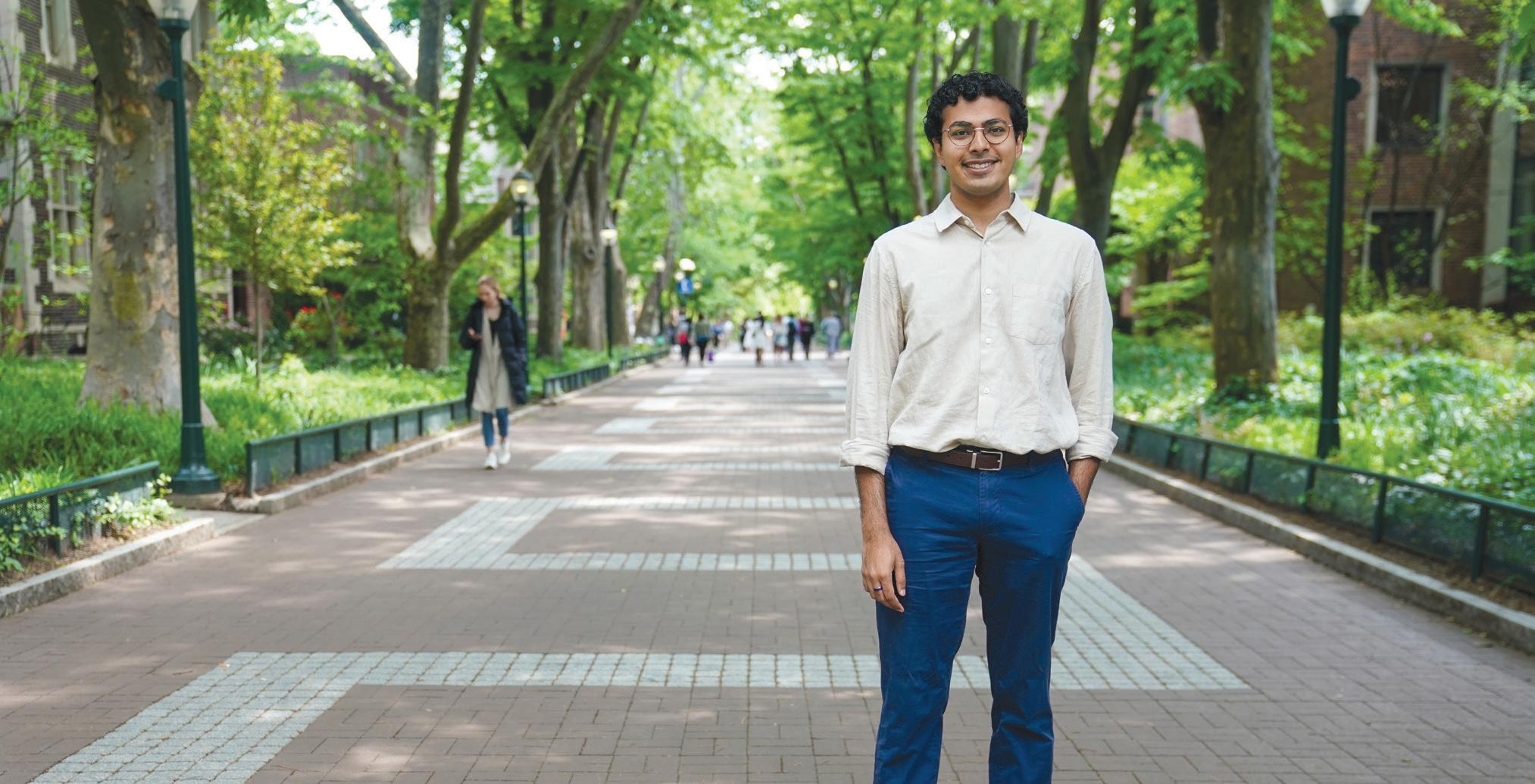
labor organizing and Penn’s alleged unionbusting tactics, the first staff editorials being published since 2021 thanks to the opinion department, and the growth of the @dailypennsports Instagram account supported by the collaboration between the sports, multimedia, and social media departments.
More than any of that, I am proud of the intentionality and thoroughness that went into every piece of content we published. As the person who fielded suggestions, feedback, and criticism from fellow Penn community members, alumni, and other stakeholders, I understand people’s frustrations and concerns. There is still a lot that can be improved, but I can confidently say that the staff approached each day with a desire to do better than the day before.
My time at the DP has given me the privilege to learn so much about different niches across the University. The problems I see within the DP are far from unique to just one organization: They are emblematic of the issues that exist within the wider Penn community. At a campus that has historically housed one of the most depressed student bodies across the country, being intentional about creating spaces centered in care and justice becomes even more vital.
As I prepare to leave Penn and I reflect on how resources and space are distributed across campus, the inequities become strikingly noticeable. For decades, students have advocated for diversifying Locust Walk — arguing that this main fixture of Penn does a disservice to the diversity that exists across the University due to the prevalence of administrative and fraternity buildings. The first major changes to Locust Walk in 1973 were a result of collective action when students and
It’s about the cones
SENIOR COLUMN | Don’t forget why we’re all here
other community members occupied College Hall for four days to protest a series of rapes on campus, eventually leading to the creation of the Penn Women’s Center.
Change doesn’t stop there, though. We can see these same conversations happening today when looking at cultural centers’ continued requests for more space on campus.
After being located in the basement of ARCH for years, the University finally dedicated the entire building to the cultural resource centers last school year — even though the leaders of Penn’s main minority coalition groups have repeatedly asked for their own buildings on Locust Walk to ensure students from marginalized backgrounds feel embraced and empowered on campus.
These conversations are also exemplified by the work of students protesting Penn’s response to the ongoing genocide in Gaza.
Student protesters and organizations like Penn Against the Occupation, Freedom School for Palestine, and Penn Faculty for Justice in Palestine established an encampment and created a space where Palestinian students feel heard at a university that remains complicit in the genocide of an entire state. They have shown us what it means to take up space to raise awareness and make positive change.
Aside from organizers’ primary demands surrounding the disclosure of Penn’s financial holdings and the divestment from corporations that profit from Israel’s occupation of Palestine, they also urge administrators to support the creation of an independent Middle Eastern cultural center at Penn. Although the importance of a cultural space pales in comparison to the tragedy occurring each day in Gaza, it is an important part of how we think about repurposing space more equitably on

I have loved spending my past three years as a part of The Daily Pennsylvanian more than words can properly capture. It has almost destroyed me more than once. The DP has given me multiple panic attacks and lost me full nights of sleep. I’m probably still recovering from the temporary insanity of spending countless hours in that windowless office at 40th and Walnut streets. And the thing is, for someone who’s served two consecutive years on the company’s executive board, all of this is par for the course.
We’re a real newsroom, and newsrooms are really stressful places. The difference is that our little media company is built on college students — still kids, in many ways — managing other college students.
If you’re anything like me, you have a lovehate relationship with the DP’s ceaseless, internal politicking and gossip. Some days, it has made me feel like Machiavelli, and on others, like I need to pull a “My Year of Rest and Relaxation.” Whether exhausting (often) or exhilarating (rarely), DP drama is never not a massive time suck. Every year, like clockwork, comes the inevitable board memo about how we all need to do less of it; anyone who can solve that will be the greatest editor in our 140-year history. But let’s take it as a given that it can’t be
solved, and why would we want to anyway?
My culturally Jewish heritage has given me an appreciation for the sacred art of the kvetch, the vent, complaining for complaining’s sake. It’s what lets us blow off steam and then get back to doing our jobs.
Nominally, those jobs are “editor” or “manager,” but when you break it down, they’re all the same thing: teacher, mentor, sensei, mafia boss. If our staffers don’t know how to do their jobs, there’s no way for us to do ours, and hopefully, if we teach at least one well enough, they will eventually be able to destroy us and assume our place.
At this year’s annual DP Banquet, I gave a toast to our 139th board president, Jesse Zhang, where I said something to the effect of “every board position is a service position, and the higher up on the org chart you go, the truer that is.” Yet, some of the best teachers I knew during my time as a 34th Street writer — Denali Sagner or Kyle Whiting or Aakruti Ganeshan — were the ones who never ran for Street’s executive board at all. They never let the climb get in the way of the work.
The drama gets especially bad around elections season every November. Hushed conversations happen behind locked doors; friendships either begin to crack or implode all at once; the committee schemes while the
hopefuls endlessly speculate. Remember, all these kids got into an Ivy League school. It’s easy to believe that the board position you do or don’t get will determine the rest of your life, or at least your time in college. It won’t. But I’ve been guilty of this line of thought myself, and I’m grateful I never had to learn the lesson the hard way. I can admit that much.
In a way, I have the most respect for the people who were on board as sophomores and didn’t run a second time; who got in, did what they were there to do, and got out.
I think of someone like Hannah Gross, the 137th board assignments editor, whose path only crossed with mine a couple of times. We met once when she was back in the office, doing interviews for a story she was writing about the company culture. She didn’t seem burned out, or like she was missing out on something. She looked happy. Allow me to clarify: I do not regret a single moment I spent at the DP. Without the scheming, I’d be at least a few friends shorter (y’all know who you are) and without the panic attacks, there would be no glossy mag to speak of today. I cherish every single person who has taught me so much — Bea, Emily, Arielle, Christine, and Katherine — and the, dare I say, protégés I’ve seen come up under
a campus where Muslim and Arab students often feel overlooked and isolated. Organizing around a shared vision of a more just future allows us to reach new potentials.
At the end of my tenure as editor-in-chief last December, I could not help but be scared of letting go of something that I put so much time and effort into — not knowing if any of the positive changes I pushed for would outlast my one year at the paper’s helm. At the same time, I recognized that I had to trust that there will continue to be students who care about pushing the DP forward and leveraging the space we already take up for justice. Despite my initial fears, I am confident that the DP can be used for good — just like the tireless student journalists who paved the way for me have believed.
Moving forward, we must continue to be intentional about the spaces we are a part of and think more deeply about how we can improve them. Whether this be on campus — ensuring our clubs and our university reflect the values we hold important — or in the places we go once we leave Penn, I urge all of us to reimagine a more just society and put the work into demanding progress.
IMRAN SIDDIQUI is a College senior studying political science from Grosse Pointe Park, Mich. He served as DP editor-in-chief on the 139th board of The Daily Pennsylvanian, Inc. Previously, he was the politics desk editor, a politics beat reporter, and an assistant to the social media deputy. His email is imransid@sas.upenn.edu.
my wing — Natalia, Norah, Sophia, Hannah, Catherine, Kate, the list goes on. I’m honored to have played even the smallest part in their growth as writers and, now, as teachers themselves.
As Street editor-in-chief, I made my name and brand on an encyclopedic knowledge of pop culture references. So before I depart this mortal coil for good, how about one more for the road. In the sixth season of the NBC sitcom “Parks and Recreation,” my lookalike Ben Wyatt gets laid off from his job and has no idea what to do with himself. Hmm, I wonder what that must be like.
He invents an absurdly complicated board game called The Cones of Dunshire: “8-12 players, two wizards, a maverick, the arbiter, two warriors, a corporal, and a ledgerman.” Sounds roughly like the DP company structure to me. As a former competitive Magic: The Gathering player and part-time Dungeons & Dragons aficionado, this is pretty much my love language.
Two seasons later, the Cones come back. Ben plays against the executives of made-up tech company Gryzzl to fight for free WiFi in his town of Pawnee, Ind. Just as it seems he’s on the precipice of defeat (“looks like someone’s out of resource gems”), Ben grins, then has a knowing chuckle: “You made one crucial mistake: you forgot about the essence of the game. It’s about the cones.”
The cones are the writers, of course. The bright-eyed first years who all ran their high school publications, begging to have that confidence gently broken down and replaced with something real. As Whitney Houston says, the children are the future. So make space for gossip, for drama, for scheming, plotting, and strategizing. Those things make life worth living. But never, ever forget what the game is really about.
SSSF 4Eva
WALDEN GREEN is a College senior studying psychology from Philadelphia, Pa. He served as the editor-in-chief of 34th Street Magazine on The Daily Pennsylvanian’s 139th board, and as Street’s inaugural print managing editor on the 138th board. His email is walgreen@sas.upenn.edu.
4 FRIDAY, MAY 17, 2024 - GRADUATION ISSUE | THEDP.COM THE DAILY PENNSYLVANIAN OPINION
The Land on which the office of The Daily Pennsylvanian stands is a part of the homeland and territory of the LenniLenape people, known to the original Indigenous people as “Lenapehoking.” We affirm Indigenous sovereignty and will work to hold The Daily Pennsylvanian and the University of Pennsylvania more accountable to the needs of Native American and Indigenous people. LAND ACKNOWLEDGEMENT INSIA HAQUE Deputy Design Editor ANISH GARIMIDI Deputy Design Editor EMMI WU Deputy Design Editor ASHA CHAWLA Deputy Copy Editor GARV MEHDIRATTA Crossword Editor SYDNEY CURRAN Opinion Photo Editor MOLLY COHEN President ANNA VAZHAEPARAMBIL Executive Editor JARED MITOVICH DP Editor-in-Chief SOPHIA LIU Design Editor WEI-AN JIN Design Editor CHARLOTTE BOTT Copy Editor LAURA SHIN Copy Editor KATIE BARTLETT News Editor BEN BINDAY News Editor ELLA SOHN Assignments Editor YOMI ABDI Opinion Editor WALKER CARNATHAN Sports Editor VIVIAN YAO Sports Editor ABHIRAM JUVVADI Photo Editor LIV YUN Podcast Editor DEREK WONG Video Editor JADA EIBLE HARGRO Social Media Editor SARAH MARCUS Diversity, Inclusion, & Standards Director ZAIN QURESHI Business Manager EDWARD LIU Analytics Manager SANGEETA QUDDUS Finance & Accounting Manager DHRUV GUPTA Innovation Lab Manager IRENE PARK Strategy & Promotions Manager 140th Year of Publication Have your own opinion? Send your letter to the editor or guest column to letters@thedp.com. Editorials represent the majority view of members of The Daily Pennsylvanian, Inc. Editorial Board, which meets regularly to discuss issues relevant to Penn’s campus. Participants in these meetings are not involved in the reporting of articles on related topics. LETTER SUBMISSION THIS ISSUE’S TEAM THIS YEAR’S BOARD
Opinion
COLUMN | Re ecting on the DP, creating intentional communities for good
ANNA VAZHAEPARAMBIL | SENIOR PHOTOGRAPHER
SYDNEY CURRAN | SENIOR PHOTOGRAPHER
Cheers to never having it ‘normal’
SENIOR COLUMN | Taking lessons from the abnormal college experience at the DP

I remember the day I was admitted to Penn like it was yesterday (off the waitlist, I might add). I was home in China due to the COVID-19 pandemic, and it was four days before my high school graduation on Zoom. I breathed a sigh of relief as the sense of certainty settled in: I was finally going to have a normal college experience. But who was I kidding? My friends and I were graduating from living rooms, cars, and socially-distanced football fields. People took to the streets around the world to advocate for racial justice. And the 2020 United States presidential election, one that was as long as it was mentally tormenting, was in full swing. We all yearned for normalcy, but nothing about our lives was normal.
While I had to begin my first year at Penn from my bedroom in China, I was determined to not let it diminish my experience. As such, over a Zoom meeting, I joined The Daily Pennsylvanian’s multimedia department. As a staffer, I took photos in corners of my world that had
SYDNEY CURRAN | SENIOR PHOTOGRAPHER
any miniscule resemblance to the writers’ experience in America. My first big assignment came when former photo editor Sukhmani Kaur asked me to stay up all night and edit photos as they rolled in on Election Day. What kind of first year gives up a night of sleep for a little club assignment? Not normal.
Though my journey at the DP started with me completing one assignment every two weeks, I would have never foreseen how it would come to define my time at Penn.
Being photo editor in 2022 allowed me to further see Penn through my camera lens. I skipped classes and meals to follow former Penn President Liz Magill to all corners of campus during the first 100 days of her tenure. I negotiated with the Secret Service to allow our own photography equipment into a campaign event with President Joe Biden and former President Barack Obama. I drove a group of photographers home at 4 a.m. after Pennsylvania Gov. Josh Shapiro and Dr. Mehmet Oz’s respective election
This could be your call to adventure
SENIOR COLUMN | Every story you tell gets messy, fast
Opinion applications for The Daily Pennsylvanian were due on a rainy, pandemic-era September day. Zoning out in a Zoom lecture, I wondered if I really wanted to put the effort into penning a sample column. Wouldn’t I just get rejected?
But then I remembered what Mr. Henderson, my high school English teacher, wrote to me that spring. He said he associated me with the newspaper, complimenting my writing style and how I gave my all on every assignment. If at least one person thought that I belonged at the paper, I may as well give it my best shot.
It’s a pretty solid call to adventure, don’t you think?
When I started writing columns, I was scared stiff of saying something that would get construed the wrong way. I reviewed every last letter and punctuation mark of my drafts, and asked my friends to do the same. With that diligence, I grew as a writer. I started speaking up in meetings, and then, in my junior year, I led them as the opinion editor.
For the longest time, I chose to interpret my time at Penn, and at the DP, as a kind of hero’s journey, where I finish demanding assignments with aplomb, and every adversity teaches me a valuable lesson. Most of us do some version of that. We hope to graduate feeling triumphant, having risen through the ranks and gained expertise in the activities and academics that we invested in. We hope that our next steps involve a dream job or school — a dream life, even.
I entered Penn my senior fall, eager to get my storybook resolution come graduation. Leaving my summer internship with glowing reviews from my mentors, I was assured of a return offer. And having made a pact with my friends to take no more than 5.5 CUs, I would be coasting, relative to my earlier 6.5 and 7 CU terms as a dual-degree student. This was the term where, instead of learning the ropes of Penn and fighting to stay afloat, I would explore and navigate new waters.
But then, as the clock struck midnight and September began, my email inbox greeted me with a “we regret to inform you” message from the company I had interned at — the first of many, many eventful emails in my inbox.
I dropped down to 4.5 CUs after struggling with a coding assignment for 20-something hours, but my workload hardly let up after that.
Over the following months, 30 and 40-hour weeks at the DP became my norm: speaking with our (incredibly, insanely dedicated) staffers and editing and fact-checking columns. I was hopping on phone calls and writing replies to email chains, dozens of messages deep in the middle of the night. By the end of the year, Opinion published over 200 staff and guest columns with diverse perspectives on campus life and current events — there is nothing I am prouder of having worked on at Penn.
None of it would have been possible without the immense support and kindness from so many wonderful, driven people. Thank you Emi, Imran, and Jesse — in the most tumultuous of times in the Pink Palace, I could count on you to advocate for Opinion and to give your all into leading the DP, which means more than words can express. Thank you Yomi, Vinay, and Emily for being the absolute best deputy editors Opinion 139 could ask for, and Matteo, for your careful sensitivity reading and suggestions. Thank you Derek, Benjamin, and all of Photo and Design for the beautiful doms, and for goofing off with me during production nights. Thank you Allyson, Julia, and all of Copy! You are the backbone of the DP. And of course, I am most grateful for the wit, enthusiasm, and commitment of every single columnist I have had the privilege to work with; your stories captivated thousands of minds and inspired countless debates.
If I was still going after that storybook resolution, I’d tell you that upon retirement from the DP, I rode off into the sunset to some magnificent end-credits-style music. At our banquet, I was honored to receive the Editor of the Year award, and after applying to full-time positions for months, I suddenly had to decide between three great job offers over the span of two weeks.
But it’s not all that simple — I’ve learned this spring that 5.5 CUs can feel just as soul-sucking as 7 (thanks, NETS 2120), and I’ve had my fair share of tough conversations, embarrassing slip-ups, and everyday misfortunes. With the turmoil and tensions both on campus and worldwide

“5 Fun Things To Do in Philadelphia,” read the subject line of my most recent email. Sitting in my childhood bedroom back in 2020, I curiously pondered over this random email that landed in my inbox. With no connection to the city, I didn’t understand why this was relevant to me. I almost ignored it, if not for my superwoman of a mother who reminded me that I was still on Penn’s waitlist. I had previously concluded that Penn was no longer a possibility, but thankfully, my mom urged me to check the portal anyway.
My screen was adorned with red and blue confetti — I had, in fact, been accepted to Penn. After re-reading the acceptance letter about 15 times to make sure my eyes were not deceiving me, my heart sank when I noticed the date. I was accepted over a week prior, but I had no idea because I missed the original email notification.
If I had not seen the subsequent email advertising Philadelphia’s main attractions, I may have missed the deadline to make an enrollment decision, or I may have never even
known that I got into Penn. I was so grateful to still have the chance to attend this prestigious university despite being so irresponsible, and I made a promise to take advantage of every opportunity this school offered. And that I did.
My Penn experience has been nothing short of fulfilling. Though my first year was characterized by measures of isolation (virtual classes, mandatory masks, grab-andgo dining), I had never felt more connected with others. Call it trauma bonding, but there is something unifying about being a “COVID freshman” that only the Class of 2024 could ever understand.
My first year was also the time when I joined The Daily Pennsylvanian as an opinion columnist, and over the next four years, I would write, edit, podcast, and even create crossword puzzles. I learned how to navigate ruthless backlash from readers attacking my character and my intellect, and I served as a deputy editor during one of the most polarizing times in DP history — two formative
night parties. Normal? Hardly.
As president in 2023, I would go on to sign my name on the dotted line and initiate the purchase of a permanent home for the DP. Our team weathered a pivotal chapter in Penn’s history which culminated in the resignation of University leaders. In those months, I woke up to dozens of hate emails in my inbox every day, and our reporters worked around the clock to keep up with national news organizations which possessed more manpower and resources.
One of the copy editors on the 139th board, Allyson Nelson, quipped of the news cycle at Penn as “when it rains, it pours.” As fun (and often exhausting) as it was to spend an ungodly amount of time in our infamously windowless office and eat countless Zesto’s pizzas, I also realized how abnormal of a collegiate experience it was. I was missing out on weeknight hangouts with friends, happy hours during restaurant week, formals, parties, and other archetypes of a “normal” college experience. For the first two and a half of my three in-person years, my friends have considerately learned to not schedule dinners with me on weeknights.
Not normal! (Shoutout to my friends for putting up with me).
Though as time went on, I grew to love the abnormality. Reporting taught me how to work with tight deadlines and competing priorities. Photographing protests showed me the importance of connecting with different communities. Leading a team through crises challenged my empathy, grit, and social consciousness. The abnormality presented me with a unique skill set and undoubtedly shaped my character. Above all, I loved how it strengthened my optimism and resilience. Or maybe it’s because I loved giving people ridiculous reasons on why I cannot make lunch: “I HAVE TO go to the airport and photograph Air Force One.”
I am acutely aware of the fact that my sense of abnormality is not unique. In many ways, the normalcy the Class of 2024 yearned for at the start of our college years
never arrived. While we no longer have to wear masks in classrooms or get swabbed twice a week in a giant air-ventilated tent, we are in the midst of another pivotal U.S. presidential election. We are having unprecedented discussions regarding First Amendment rights on college campuses, and our communities are feeling the inevitable ripples of conflicts across the world. Rather than letting these challenges loom over our impending graduation, we should consider the opportunities that they present. We are uniquely positioned to speak out about issues close to our hearts, have constructive conversations on the most contentious topics of the day, and act to improve the community around us. While the COVID-19 pandemic put in-person socializing on hold, we learned how to forge connections and friendships through screens. We saw the importance of becoming more self-educated and practicing our civic duties during the Black Lives Matter movement and the 2020 elections. Not since the civil rights movement and Vietnam anti-war protests of the 1960s has so much media attention been dedicated to college campuses across the country, and we must use what we learned from the abnormality of our college experience to rise up to the challenge. Between our myriads of farewell toasts, I realize that what began as a quest for normalcy evolved into an embrace of abnormality. Our college graduation is hardly the ultimate epilogue; it is merely the cliffhanger to the rest of our lives. The abnormality we saw throughout our time in college will undoubtedly change the ways in which we can and will approach the world. So in all the ways we are celebrating the Class of 2024 this graduation season, here’s cheers to the abnormality that made us one of a kind.
JESSE ZHANG is a Wharton senior studying business economics and public policy and marketing from Shenzhen, China. He was president of the DP’s 139th board. His email is zhexi@wharton.upenn.edu.

right now, it feels disingenuous to tell a story where everything wraps up neatly, with no loose ends.
I said before that in a hero’s journey, each adversity teaches you a lesson — but that’s not how life actually works. Sometimes, you just screw up, for no reason other than bad luck or a bout of clumsiness. Sometimes, there’s no purpose to it: only pain.
Because of that, I’ve given up on the hero’s journey altogether. Shifting away from grandiose but precarious narratives that hinge on external validation, like acceptances and awards, I now prefer to focus my story on the day-to-day minutiae that bring me joy and stability. It is filled with lovely little moments, like chatting with my roommates over spicy, piping-hot bowls of instant ramen, or taking in the fresh air and ambiance as I walk through the Woodlands.
My life feels far fuller with this type of story than when I’ve tried to contort my time at Penn into a narrative with some meaningful conclusion to it all. I have flourished in
many ways here. But in others, I am very much a workin-progress, and that’s perfectly fine. I hope that you will come to adapt your stories as you grow and change too — sticking with a rigid narrative for too long is no fun.
I suppose I’ll end here on the same line that got me into this whole (glorious) mess in hopes that it inspires somebody else: whoever you are, if you so desire, you can belong at the paper. Start writing stories, and never stop. Be curious and skeptical about every narrative you examine — ask lots of questions and raise objections when you see fit. You’re going to be brilliant.
CAROLINE MAGDOLEN is a College and Engineering senior studying earth science and systems engineering from New York City. She was previously opinion editor for the DP’s 139th board. Her email is magdolen@thedp. com.
but one missed email almost cost me the entire experience
experiences that have shaped who I am as a person and a writer. I credit the DP for planting the seeds of my future in journalism, and I would not have had the privilege of working for NBC News, CNN, and ABC News without my roots here.
Aside from the career benefits, writing for the DP also presented opportunities to unravel years of internalized racism. My articles about Asian hate and xenophobia in Congress may not seem significant to the average reader, but this represented a huge step forward in not only accepting my racial identity, but being proud to publicly defend it. Coming from a predominantly white neighborhood and high school, I never truly felt comfortable in my own skin and even cringed at my culture. I am ashamed to admit this now, but I sought to assimilate by subconsciously surrounding myself with white friends, American cuisine, and white norms. While this may sound like an absurd paradox, joining a sorority further prompted me to embrace my Asian identity. I began to see Asian women engaging in social endeavors and being welcomed in spaces that I had previously assumed were exclusive to white individuals. And though Greek life undoubtedly has a litany of faults in regards to diversity and inclusion, I do credit Penn’s chapter of Alpha Phi for providing my first friendships with girls that actually looked like me. I have had some of the deepest conversations with these women regarding shared backgrounds, childhood similarities, and generational differences — topics that I never even fathomed to touch on beforehand.
These social interactions remain my most treasured takeaway from college. Of course, all the sweaty frat basements, overpriced downtown events, and BYO dinners are core memories in my Penn experience. But rather than reminiscing about these drunken nights, I am more proud of the friendships that these social outings have rewarded me with. I have met my best friends that know me better than I know myself, some of whom I would quite literally
consider to be family. I have learned about love and loyalty, support and sacrifice, trauma and tragedy.
My friends have also inspired me in a myriad of ways, and I’ll never tire of watching them launch companies, save lives, and change the world. They dedicate their hearts and souls to every endeavor, including athletics, the arts, and other extracurricular activities. In fact, witnessing my peers’ passions has served to revitalize my own. As a competitive figure skater for over 12 years who suffered from burnout and grew to despise the sport, I refused to step foot on the ice again. Though I joined the Penn Figure Skating Club during the fall of my first year, it was not until senior spring (seven semesters later) that I visited the Penn Ice Rink for the very first time. I regret how long it has taken, but it has been a beautiful journey receiving such profound support and falling back in love with the sport that defined me for over a decade. I could go on and on about the many things that Penn has taught me, but my mind always goes back to the day I discovered my Penn acceptance and the panic that ensued after realizing I opened the letter a week late. I often think about how different my life would have been had I continued to neglect my inbox, and I always come to the same conclusion: none of these experiences would have been the same, and many of these life lessons may have never come to fruition.
So if there’s one piece of advice I have to give, it is to check your email. One email could change the entire trajectory of your life, just as mine did.
EMILY CHANG is a College senior studying communication and law & society from Holmdel, N.J. She served as a deputy opinion editor and the opinion podcast host on the DP’s 139th board. Her email address is changem@ sas.upenn.edu.
5 FRIDAY, MAY 17, 2024 - GRADUATION ISSUE THEDP.COM | THE DAILY PENNSYLVANIAN OPINION
PHOTO COURTESY OF CAROLINE MAGDOLEN
Check your email; it may just change your life SENIOR COLUMN
provided the most fruitful and ful
years,
| Penn
lling four
SYDNEY CURRAN | SENIOR PHOTOGRAPHER
Penn’s Gaza Solidarity Encampment, from beginning to end
The Daily Pennsylvanian looks back at the Gaza Solidarity Encampment and its disbandment, which took place in the weeks prior to Commencement
DIAMY WANG Senior Reporter
On April 25, pro-Palestinian demonstrators rushed onto College Green, marking the beginning of Penn’s 16-day-long Gaza Solidarity Encampment to protest the University’s ties to the war in Gaza.
The encampment was met with opposition and threats of disciplinary action from Penn’s administration throughout its duration, as well as flared tensions with pro-Israeli counterprotesters and Jewish community members. It also included programming such as speaker events, movie screenings, and poetry readings. Ultimately, early in the morning on May 10, more than 100 Penn Police and Philadelphia Police Department officers swept the encampment — arresting 33 members, including nine Penn students, and dismantling it.
Here’s a look back at the 16 days of the Gaza Solidarity Encampment and how it may continue to affect campus, even after its disbandment.
How the encampment started Penn revoked Penn Students Against the Occupation of Palestine’s status as a student organization on April 19.
A month prior, The Daily Pennsylvanian reported that the University’s Center for Community Standards and Accountability was investigating the pro-Palestinian group.
Campus tensions were already rising when a referendum petition circulated by Penn’s Muslim Students’ Association on April 24 — which asked, among other questions, whether Penn should divest from companies with ties to Israel — gathered the 500 signatures necessary to be sent to the undergraduate student body on April 26. In response, the Penn Israel Public Affairs Committee proposed its own referendum on April 25.
A protest organized by the Philly Palestine Coalition started at 2 p.m. at City Hall on April 25, and made its way to University City and eventually Penn’s campus, where Interim Penn President Larry Jameson and Provost John Jackson Jr. were hosting a community listening session at Perry World House. The protest met with a faculty walkout at 4 p.m. in front of the Split Button, and the encampment — with around 20 tents — was set up on College Green shortly after 4:30 p.m.
The encampment demanded that Penn divest from “corporations that profit from Israel’s war on Gaza and occupation in Palestine,” disclose its financial holdings under the Associated Investments Fund, and defend Palestinian students — including by withdrawing its disciplinary actions against pro-Palestinian activists and reinstating PAO. The encampment continues
On the second day of the encampment, Jameson issued a statement to the Penn community, in which he said that Penn is “closely monitoring the encampment” and pledged “follow-up action as appropriate.” Members of the Jewish Student Advisory Board met with Penn administrators that day to detail alleged instances of harassment from
encampment members, though they did not explicitly seek the end of the encampment.
That evening, Jameson sent another email urging the encampment to disband “immediately,” citing “blatant violations of University policy.” He listed several violations, including instances of harassment and vandalism.
Throughout its duration, the encampment hosted several prominent speakers, including a former member of the MOVE movement, the founder of Students for Justice in Palestine, imprisoned political activist Mumia Abu-Jamal, professor and activist Marc Lamont Hill, and Rutgers University professor Noura Erakat.
The encampment was often met with groups of proIsraeli counterprotesters who demonstrated across from it.
There were several notable instances of physical threats to the encampment, including a pro-Israeli instigator who entered an event with a knife holster and was given a citation by police. In another incident, Penn’s Division of Public Safety detained a man who walked through the encampment spraying an “odorous substance” on May 1. Encampment members also reported multiple instances of harassment by counterprotesters in early morning hours and involving Islamophobic rhetoric and invocations of violence.
In the following weeks, Jameson and Jackson met multiple times with members of the encampment for negotiations. Protesters were faced with threats of arrest and disciplinary action, including during a fire marshal sweep, threats of identification checks, and two separate waves of disciplinary action that saw disciplinary cases and leaves of absence against encampment members.
On May 2, the DP reported that Penn requested immediate help from PPD to disband the encampment. Penn Police and PPD maintained a steady presence throughout the duration of the encampment. PPD presence was especially large on May 8, when the encampment expanded to the other side of College Green after negotiations allegedly stalled. Arrests and the aftermath
Around 6 a.m. on May 10, Penn Police — assisted by around 100 Philadelphia Police officers — moved in to sweep the Gaza Solidarity Encampment. Protesters did not resist arrest. Police concluded arrests of 33 people, nine of whom were Penn students, after approximately an hour, at which point they were taken to a PPD station, processed, and released.
Immediately following arrests, Penn employees cleared the encampment. Jameson defended the sweep, writing in an email to the Penn community that it was an “unfortunate but necessary step.”
Faculty Senate Chair Tulia Falleti resigned her position that day, saying she was “no longer confident” she could work productively with Penn administration. She retains her role as a political science professor.


officers face protestors
Encampment.
A protest that evening marched through University City, where some protesters entered the President’s House on 38th and Walnut streets and participated in a “primal scream” before ending at 33rd and Market streets near Drexel University’s campus. At least four demonstrators briefly entered the gates of the residence, and at least one knocked on the door.
Community reactions
Some members of Penn’s Jewish community expressed opposition to the encampment, citing concerns about Jewish student safety and a desire for peaceful dialogue. Jewish community members presented their concerns about harassment and intimidation at the encampment in meetings with administrators and in multiple petitions, which received over 3,000 signatures and were sent to Jameson.
Several Penn-affiliated and Philadelphia organizations expressed support for demonstrators throughout the encampment — both for their cause and for their First Amendment right to protest. Penn’s chapter of the American Association of University Professors released multiple statements regarding the encampment, in which they opposed violent action and condemned the arrests.
The disbandment of the encampment garnered mixed reactions, with some condemning the University’s response while others commended Penn for “taking decisive action” in the face of alleged safety concerns.
Multiple politicians — including Penn’s representatives on the city and state levels — visited the Gaza Solidarity Encampment throughout its roughly two weeks on College Green.
On the first night, multiple state representatives, including 2013 Engineering graduate and state Rep. Rick Krajewski (D-Philadelphia), who represents Penn, visited the encampment. They expressed their support for the demonstration and emphasized that they hoped it would remain peaceful.
Philadelphia District Attorney Larry Krasner and
Philadelphia City Councilmember Jamie Gauthier also visited the encampment. Krajewski and Gauthier — who also represents Penn and received a master’s in city planning from the Stuart Weitzman School of Design in 2004 — expressed their frustrations at being unable to speak with Jameson despite multiple attempts to reach him, which Gauthier called “unusual and concerning.”
Describing what he said were violations of the law and the rules, Pennsylvania Gov. Josh Shapiro called for Penn to disband the “out of control” encampment on May 9, and praised the University when it did so — a sentiment echoed by Sen. Bob Casey (D-Pa.).
Disruptions of University business
Several end-of-year celebrations originally set to take place on College Green changed their locations due to the encampment.
U-Night, a sophomore tradition normally held on College Green, was relocated to the high rise field, while Final Toast — a celebration of the senior class — was relocated to Shoemaker Green. Hey Day, one of Penn’s biggest traditions that commemorates the rising senior class, was moved to take place in Annenberg Plaza. Its customary procession down Locust Walk was shifted such that it would conclude before reaching the encampment.
Immediately after the encampment was dismantled, College Green was fenced off — cutting off a major throughway across campus and complicating access to several buildings, including Van Pelt-Dietrich Library and Fisher Fine Arts Library. The fences remain up as of publication time, and notices of trespass are attached to the fences. It is unclear when the barricades will be removed.
Penn also implemented “added security” for this year’s commencement, including airport-style security checks and a no-bag policy, and removed details about the student procession.
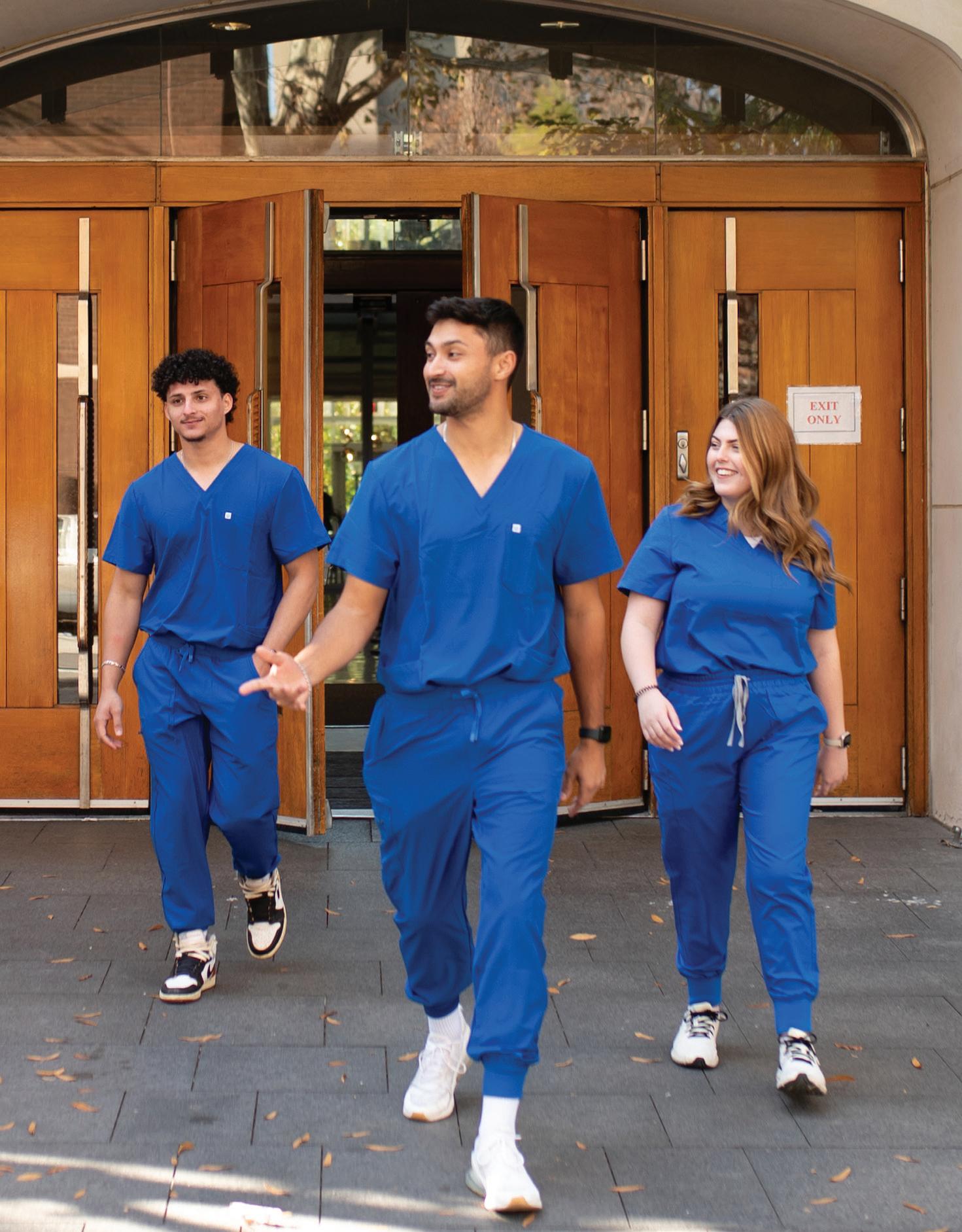

6 NEWS FRIDAY, MAY 17, 2024 - GRADUATION ISSUE | THEDP.COM THE DAILY PENNSYLVANIAN A L U M N I R E C E P T I O N 2 0 2 4 C O R D I A L L Y I N V I T E S A L L D P A L U M N I , G R A D U A T I N G S E N I O R S , A N D C U R R E N T S T A F F T O P l e a s e j o i n u s f o r d r i n k s a n d a l i g h t b i t e t o e a t C h a t w i t h f o r m e r c o l l e a g u e s , r e m i n i s c e a b o u t t h e o l d d a y s , a n d s e e t h e c u r r e n t D P o p e r a t i o n
ETHAN YOUNG | STAFF PHOTOGRAPHER
Police
on May 10, the day of the disbandment of the Gaza Solidarity




7 NEWS FRIDAY, MAY 17, 2024 - GRADUATION ISSUE THEDP.COM | THE DAILY PENNSYLVANIAN Celebrating UPenn’s Class of 2024! 20 S 33rd Street at Chestnut Street | 215.398.1874 | www.coopphilly.com | co.opphilly Restaurant & Bar Congratulations to the Class of 2024!
Penn sees presidential resignation, leadership crisis over handling of antisemitism on campus
Liz Magill resigned last year amid backlash over antisemitism controversies — making her the rst Penn president to resign for reasons other than government appointment
ELEA CASTIGLIONE Senior Reporter
at the end of last


semester prompted shock, relief, and concerns over free speech among Penn students. Months of mounting scrutiny that began in September with the Palestine Writes Literature Festival were compounded by donor and politician calls for her resignation. The pressure before her eventual resignation presented the campus with questions over the role that alumni, donors, and political leaders should play in administrative decisions at Penn.
Almost five months have elapsed since Magill resigned, and the University Board of Trustees has yet to announce any progress in the search for the University’s next permanent president.
The Board of Trustees has not yet made an announcement on the status of the presidential search process for Magill’s replacement, nor

Larry Jameson was appointed interim president after the resignation
Sophia

have members of the committees involved in the search been named. This marks a change from the three most recent previous searches, when the Board of Trustees started the process within two months of the former president’s resignation announcement.
Penn is one of four Ivy League universities currently in some stage of leadership transition, after Cornell President Martha Pollack announced her resignation on May 9.
As Penn searches for a new permanent president, administrative changes have taken place — or will take place next school year — at most of Penn’s schools.
On the same day as Jameson’s appointment to interim president, Jonathan Epstein was named interim dean of the Perelman School of Medicine. In an interview with The Daily Pennsylvanian, Epstein said that he will “serve [in his interim role] as long as they want [him] to serve,” but said that, by policy, the University will conduct a national search for a new dean.
On April 4, an email to the Penn community announced that College of Arts and Sciences Dean Paul Sniegowski would be leaving the position leading Penn’s largest undergraduate school on August 1 to assume the Earlham College presidency. According to the email, which was sent by School of Arts and Sciences Dean Steven Fluharty, the search for Sneigowski’s successor will begin “immediately.”
Three deans—Dean of the Annenberg School for Communication Sarah Banet-Weiser, Dean
of
finished their first full academic year in the positions after being appointed last summer.
Lee, who is the law school’s first female dean, and Strunk both began on July 1, and BanetWeiser assumed the role on August 14.
In March of this year, Jameson and Provost John Jackson Jr. announced the formation of consultative review committees to support the reappointment processes for two Penn deans. The committees will oversee the reappointment processes for School of Dental Medicine Dean Mark Wolff and School of Veterinary Medicine Dean Andrew Hoffman. Per University policy, a committee must be formed to advise the president and provost whenever they are considering reappointing a dean.
Fluharty, the dean of the School of Arts and Sciences, will end his second term in 2025. He was first appointed in 2013. According to the Faculty Handbook’s Policies Concerning Academic and Administrative Officers, deans shall normally “serve no more than twelve years.”
Dean of the Stuart Weitzman School of Design Frederick Steiner’s term also ends in June 2025, after he began the role in 2016. It remains unclear when Penn will find and announce a permanent new president, presenting the question of whether an interim president will oversee the appointment of a new dean to two of Penn’s schools.

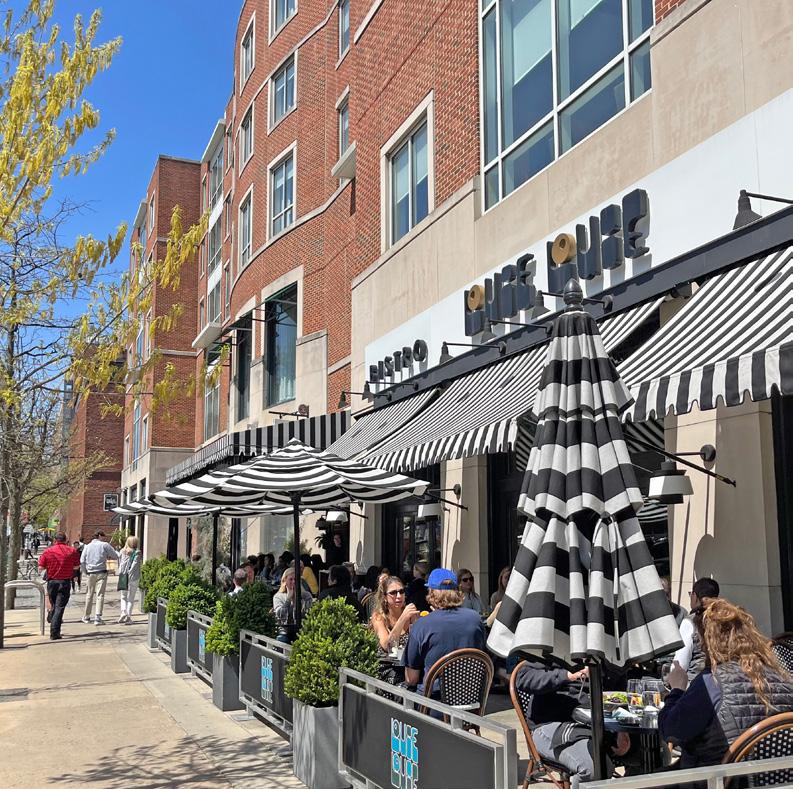

8 NEWS FRIDAY, MAY 17, 2024 - GRADUATION ISSUE | THEDP.COM THE DAILY PENNSYLVANIAN Grads Fads + MustHaves Shop Local. Shop Penn. #SHOPPENN @SHOPSATPENN Movers Shakers + Quakers With more than 60 eateries, stores, and entertainment venues, you have many options for gifts and celebrations right around campus. Let Shop Penn help you make the most of your graduation experience. SHOPSATPENN.COM from the Homewood Suites by Hilton, University City 4109 Walnut St, Philadelphia, PA 19104 (215) 382-1111 bit.ly/homewooducity Congratulations Class of 2024!
2023-24 academic year was defined by administrative turmoil, including the mid-year resignation of former Penn President Liz Magill
subsequent appointment of Interim President Larry Jameson.
The
and
last year amid backlash over antisemitism controversies —
her
Penn president to resign
shortest tenure
history.
Magill resigned on Dec. 9 of
making
the first
for reasons other than government appointment. She had the
in Penn
The Penn Board of Trustees appointed former Perelman School of Medicine Dean Larry Jameson three days later.
academic
seen
leadership
2025.
resignation
Additionally, half of Penn’s 12
schools have
or will see
changes between 2023 and
Magill’s abrupt
ABHIRAM JUVVADI | PHOTO EDITOR
of Liz Magill.
Penn Carey Law
Lee, and Dean of Graduate School of Education Katharine Strunk—just
Graduate student employees, RAs, and Penn Med residents unionize
GET-UP is now the largest union at Penn in recent memory, representing over 3,700 workers
EMILY SCOLNICK Senior Reporter
Penn’s graduate student workers voted to unionize by an overwhelming majority amid a wave of union activism among the student worker community.
The vote passed by a 1,807-97 margin. Over 2,300 eligible workers, all of whom are members of Graduate Employees Together — University of Pennsylvania, cast ballots in the election, which took place from May 1 to 2. About 400 graduate workers cast “challenged” ballots, meaning that the University and graduate workers disagree on whether these employees are eligible to vote.
GET-UP is now the largest union at Penn in recent memory, representing over 3,700 workers. Penn’s residential advisors, graduate residential advisors, and Penn Medicine residents have also increased union campaigns in recent months.
“Today, after months of organizing and a series of delays by the university, we are thrilled to announce that we have won our union,” sixthyear history and sociology of science Ph.D. candidate and GET-UP organizer Sam Schirvar wrote in a press release. “This battle was hardfought, and every single worker who made time to organize played a part in this victory … We are urging the university to prepare to negotiate with us for a fair contract.”
A University spokesperson wrote in a statement to The Daily Pennsylvanian that the National Labor Relations Board will now certify the election outcome. When the certification is complete, United Auto Workers — which now officially represents GET-UP — will request to begin the collective bargaining process.
“At Penn, we engage as a community to advance what is important to us all — a dynamic and supportive academic environment,” the spokesperson wrote. “We look forward to working with representatives from the UAW to continue this important mission for Penn’s graduate and professional students.”
The election victory caps months of campaigning and unexpected delays. In October 2023, graduate students seeking to form a union filed 3,000 authorization cards with the NLRB, but the University subsequently refused to voluntarily recognize the union. The subsequent election was originally scheduled for April 16 and 17 but was suddenly postponed on April 11.
As graduate workers across Penn’s campus celebrate the victory, attention now turns to future bargaining efforts.
“This is a historic moment,” sixth-year
communication Ph.D. candidate Brend Mahoney, who served as an election observer due to being ineligible to vote, told the DP. “[The union] is going to give us a seat at the table with Penn to win provisions for grad students that we very much need.”
Mahoney emphasized that all graduate student workers — even those unable to vote in the election — “make essential contributions” to the teaching and research at Penn.
“It’s really important for workers to have a democratic voice in our workplace,” fifth-year English Ph.D. candidate Sam Samore added. “That right for workers is enshrined in the law. But we only take advantage of that right if we form a union.”
“This is an inspiring victory and shows the power of truly worker-led organizing,” Director of UAW Region 9 Daniel Vicente wrote in a press release. “We welcome these workers into the growing UAW Region 9 family. And we look forward to standing with them as we fight together for a strong first contract that achieves what they deserve and continues to raise standards for academic workers across the US.”
As GET-UP looks ahead to bargaining, United RAs at Penn — a union representing Penn’s nearly 220 RAs and GRAs — has reported “bad faith” bargaining efforts with the University as it nears the end of almost five months of negotiations. Penn’s RAs and GRAs originally voted to unionize by an overwhelming majority in September 2023, forming the first student union at Penn.
College senior and RA Conor Emery told the DP that Penn has been “consistently low-balling” the union’s proposals for increased wages for RAs and GRAs.
Currently, Penn RAs and GRAs are paid $600 a year, according to remarks from 2016 Graduate School of Education graduate and organizer with the Office of Professional Employees International Union Local 153 Scott Williams at a rally on May 8.
“Minimum wage laws do not exist for student workers,” he said. “That means these workers are not entitled to $7.25 an hour.”
According to Emery, United RAs at Penn is seeking $6,000 stipends for its workers, and he said the RAs told University negotiators that “we’re not accepting under $5,000.” He added that the University refused to go above a $1,000-per-year offer.
Residents and fellows at Penn Med are also rallying for higher wages and better benefits
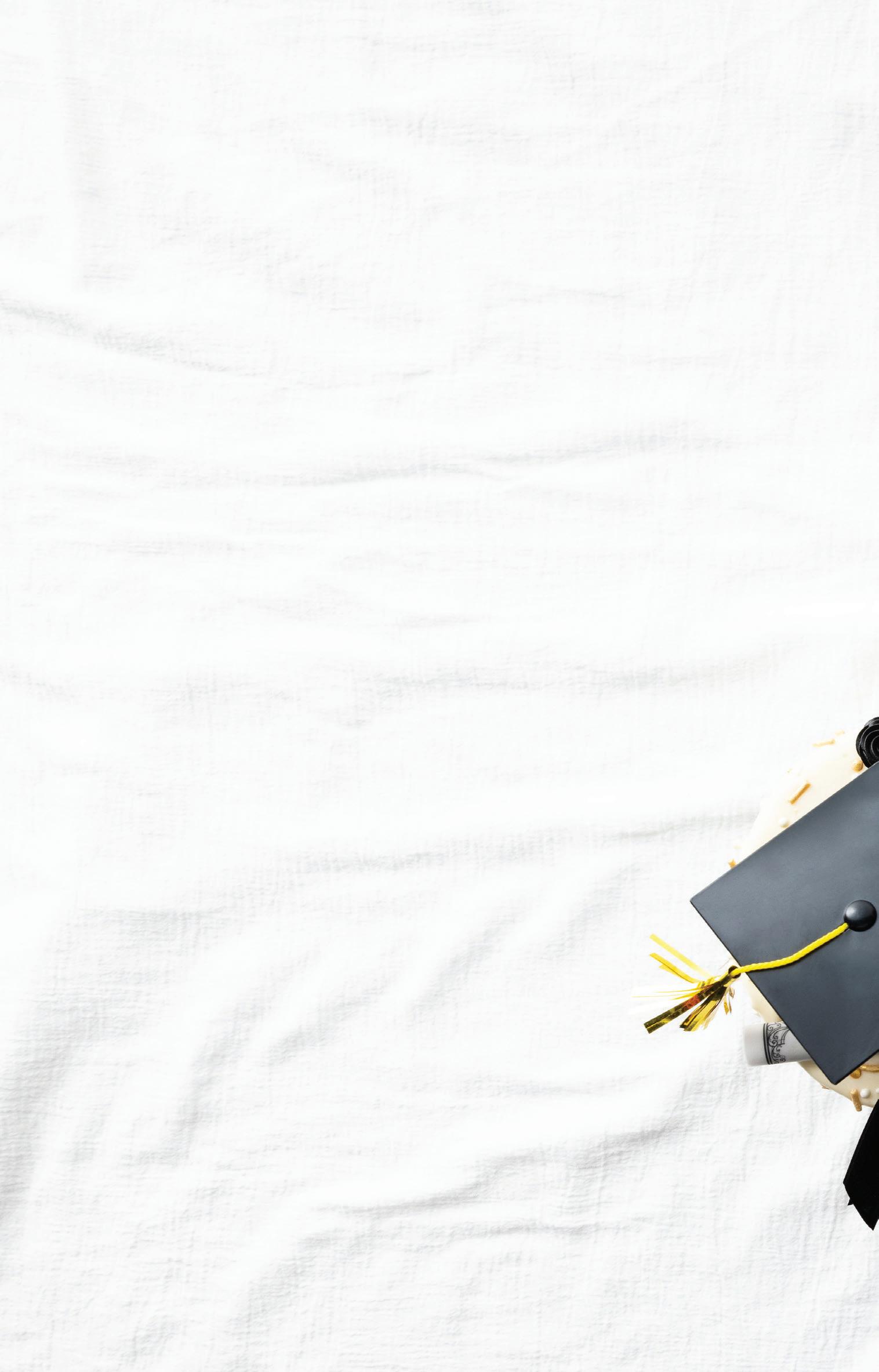
after voting to unionize in May 2023.
Over 100 Penn Med residents participated in a rally on May 1 to support the fight for higher wages, as residents work up to 80 hours per week for pay that they argue is insufficient.
The rally was attended by several local government officials, including City Councilmembers Jamie Gauthier, Nicolas O’Rourke, 1990 Penn graduate Nina Ahmad, Rue Landau, and Kendra Brooks, according to WHYY. State Rep. Rick Krajewski (DPhiladelphia) and state Sen. Nikil Saval (D-Pa.) also attended the event.
“We have appreciated the ongoing opportunity
to hear directly from residents about their concerns during this unionization campaign,” a Penn Med spokesperson wrote to the DP when residents first unionized. “We have an obligation to stay true to our shared goals to provide the very best care to our patients and to ensure that new physicians are able to train in an environment that allows them resources to flourish academically, professionally, and personally.” GET-UP is now looking ahead to beginning bargaining efforts after the official certification of their union, while United RAs at Penn and Penn Med residents continue their fight for a new contract and higher wages.
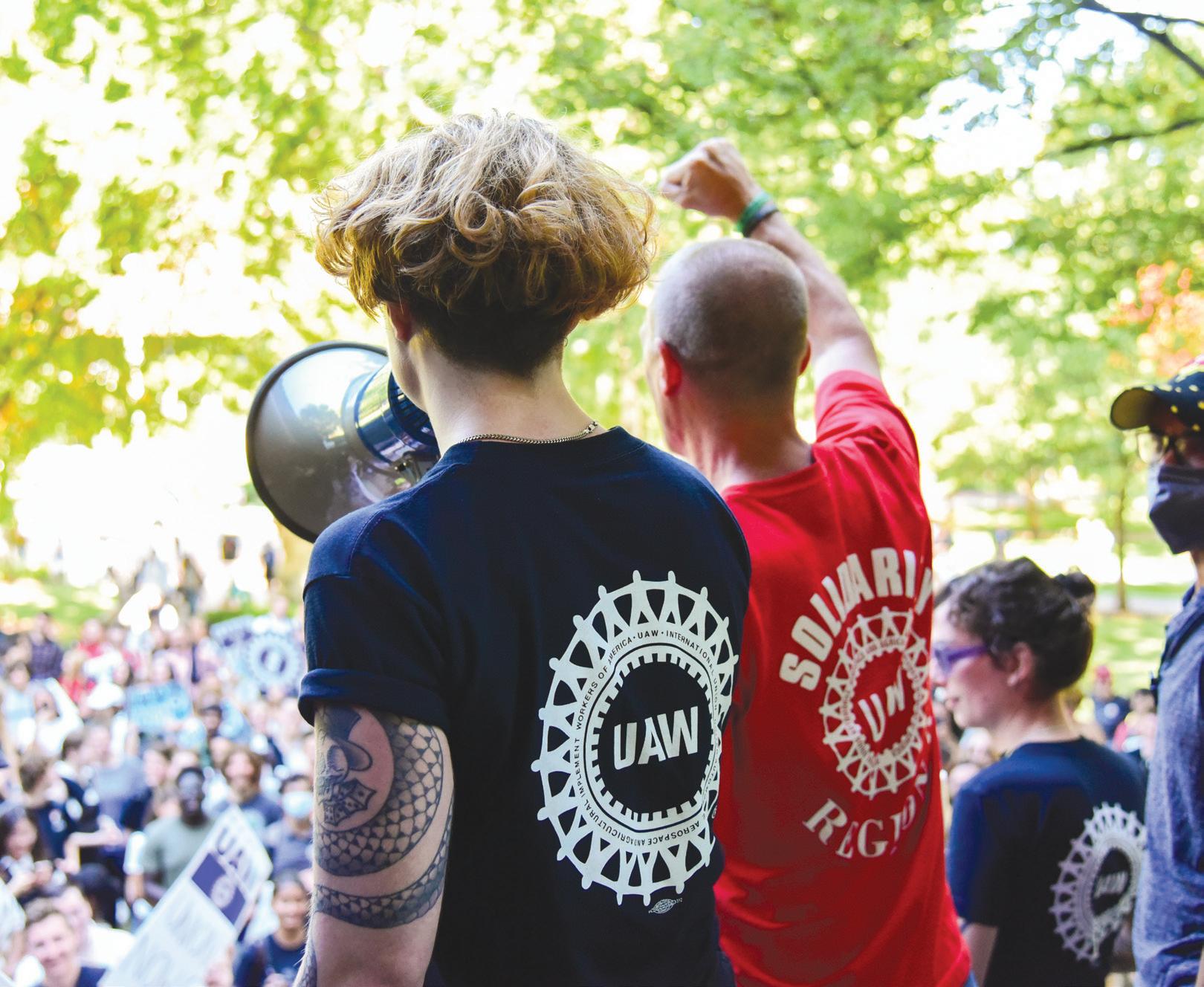










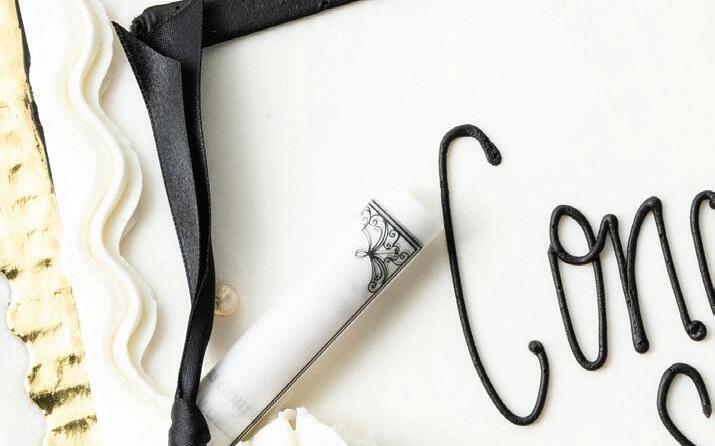


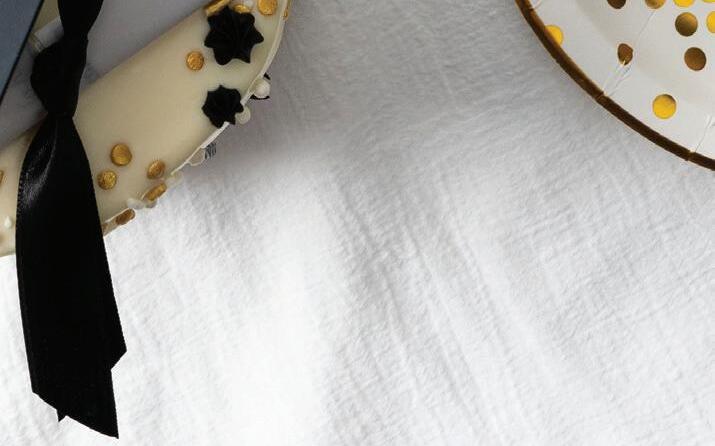
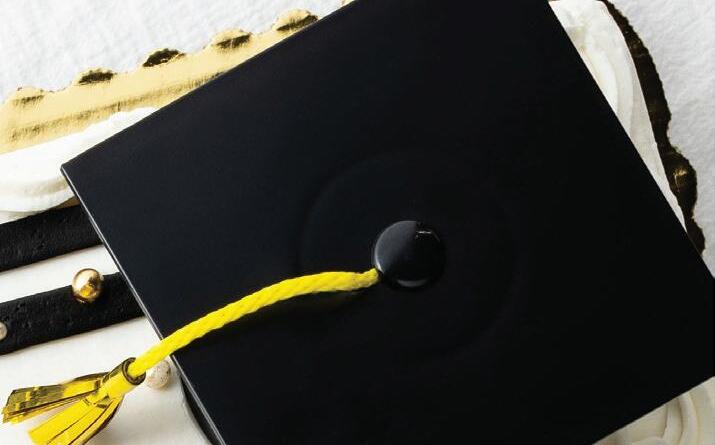







9 NEWS FRIDAY, MAY 17, 2024 - GRADUATION ISSUE THEDP.COM | THE DAILY PENNSYLVANIAN Join to access the weekly ad, personalized deals & more. Hungry for more deals? Subject to program terms. Visit acmemarkets.com/foru-guest.html for full terms and conditions. Download the app Caps off to you! We have all your celebration essentials Order your cakes, flowers, party trays and MORE! from the Homewood Suites by Hilton, University City 4109 Walnut St, Philadelphia, PA 19104 (215) 382-1111 bit.ly/homewooducity Congratulations Class of 2024!
CHENYAO LIU | SENIOR PHOTOGRAPHER
On May 2, Penn’s graduate student workers voted to unionize by an overwhelming majority.
Penn implements added security for 2024 Commencement, removes details about student procession
Measures include airport-style security, a no-bag policy, and PennCard checks for all graduates to enter the eld
ETHAN YOUNG Staff Reporter
Penn is planning added security protocols for this year’s Commencement ceremony and has removed details about the student procession as it responds to the ongoing Gaza Solidarity Encampment.
In a message to “Parents, Families, and Friends” sent on May 8 and obtained by The Daily Pennsylvanian, the Office of the University Secretary outlined several measures that it will take to ensure “the safety of all in attendance” at Commencement, which will take place on May 20 at Franklin Field. These measures include airport-style security, a no-bag policy, and PennCard checks for all graduates to enter the field.
“Guests may not bring artificial noisemakers (including airhorns or bullhorns), signs, posters, flags, or golf umbrellas (small collapsible
umbrellas only),” the statement reads.
A University spokesperson declined a request for comment.
Last year, Penn implemented airport-style security due to the attendance of President Joe Biden. This year, the University will also maintain a “high level of security” at all Franklin Field gates and on the field inside the stadium.
“The circumstances on Penn’s campus are evolving, and as such, the security procedures for the ceremony may change as conditions warrant,” the message added.
Information about a processional of graduates, which normally travels from High Rise Field to Franklin Field, was also been updated on the Commencement site to remove specific information about the path of the procession, according to website archives. The procession
would normally pass College Green, where the encampment just expanded as it enters its third week. It has been delayed by 30 minutes to begin at 9 a.m.
On May 8, Penn Alumni Relations notified campus groups about changes for Alumni Weekend, including the relocation of the Penn Fair to Houston Hall. The Penn Fair, where student groups and departments table for alumni visiting campus, is typically held on Locust Walk outside Van Pelt Library.
As a national wave of pro-Palestinian demonstrations sweeps the country, multiple commencement ceremonies have been impacted. Columbia University canceled its main ceremony after the police swept an academic building and encampment occupied by protesters. The University of Southern
California has also significantly updated its graduation ceremony plans after prohibiting its valedictorian from delivering remarks.
Several buildings around Penn’s campus — including Van Pelt-Dietrich Library and Penn Hillel — increased security after the Gaza Solidarity Encampment expanded on College Green, in what was then an initial sign that Penn Police and Philadelphia Police were escalating their presence as Alumni Weekend neared.
Physician, researcher, and best-selling author Siddhartha Mukherjee will deliver the commencement speech for the Class of 2024. Five other individuals will receive honorary degrees at commencement alongside Mukherjee: Ingrid Daubechies, Karl Deisseroth, Kenny Gamble, Maya Lin, and Leon Huff.








10 NEWS FRIDAY, MAY 17, 2024 - GRADUATION ISSUE | THEDP.COM THE DAILY PENNSYLVANIAN CONGRATULATIONS CLASS OF 2024! Bob Luczak, NMLS# 436116 Sr Loan Advisor D: 267-257-3992 | Bob Luczak@fairwaymc com 487 Devon Park Dr, Ste 212 | Wayne, PA 19087 SCAN FOR MORE INFO Copyright©2024 Fairway Independent Mortgage Corporation NMLS#2289 4750 S Biltmore Lane Madison WI 53718 1-866-9124800 All rights reserved This is not an offer to enter into an agreement Not all customers will qualify Information rates and p og a s a e subject to cha ge without otice All p oducts a e subject to c edit a d p ope ty app oval Othe est ictio s a d limitations may apply Equal Housing Opportunity Licensed by the NJ Department of Banking and Insurance
JESSE ZHANG | DP FILE PHOTO
The University announced increased safety measures on May 8 for this year’s Commencement ceremony.
How Penn’s cultural centers are celebrating graduation
Penn cultural centers — including the LGBT Center, Makuu: The Black Cultural Center, and La Casa Latina — are hosting special events to celebrate their graduating seniors
VIDYA PANDIARAJU Senior Reporter
Center. All students who are graduating in the 2023-24 academic year were invited to participate. Parents and friends of graduates were also invited to attend.
The Pan-Asian American Community House is hosting a graduation reception in collaboration with the Asian American Studies Program. The reception will immediately follow Commencement on May 20, starting at 12 p.m., and will be held at the ARCH building.
Associate Director of PAACH Vicky Aquino said that she was “absolutely thrilled” to be involved in hosting the reception.
“It’s a day to honor the students’ incredible
achievements and the beginning of an exciting new chapter. It’s also a chance for us to celebrate with the graduates and meet their family and friends,” she said. La Casa Latina, the main hub for Latinx students, is hosting a Latinx Graduation Ceremony in Zellerbach Theatre on May 19, followed by a champagne reception in Annenberg Plaza. The celebration will be bilingual, in Spanish and English.
“We are excited to celebrate this momentous occasion in community and with loved ones present,” La Casa Latina wrote in a post to Instagram.
Makuu: The Black Cultural Center will welcome graduates and their families and friends to attend an awards ceremony on May 18, followed by a lunch reception at the ARCH building. Presented awards are meant to “showcase the spectrum of talent, passion, and aptitude on display in [the] student community,” according to the Makuu website. Recipients are chosen through a

The ARCH building is the University’s designated cultural
process of community nominations and staff member voting.
The celebration is an “opportunity to highlight our students who have made outstanding achievements at Penn as scholars and leaders, while at the same time it allows us an opportunity to honor our African and African-diasporic culture and heritage,” according to Associate Director of Makuu Michelle Gilliard Houston.
Gilliard Houston said that the ceremony serves as a celebration that “reinforces [students’] focus on joy and the sense of family that is nurtured in the Black Penn community.” She added that graduating students will always have a community in Makuu.
“Graduation does not mean the end of their connection to Makuu now that they are alumni. Makuu will always be their home,” she said.
























































11 NEWS FRIDAY, MAY 17, 2024 - GRADUATION ISSUE THEDP.COM | THE DAILY PENNSYLVANIAN CONGRATULATIONS TO THE CLASS OF 2024! Domino sTM 215-662-1400 4438 Chestnut St. 215-557-0940 401 N. 21st St. WE MAKE ORDERING EASY! CALL DIRECT OR CHOOSE YOUR ONLINE OR MOBILE DEVICE RECEIVE a FREE! 8 Pcs of Bread Twist (3 options) Use Coupon Code [8149] | Minimum $15 Purchase - Delivery Only WHEN YOU ORDER ONLINE SUN-THURS: 10AM - 2AM • FRI & SAT 10AM - 3AM Healthy adults 18+ needed for a research study on the mouthfeel of sugar and fat. Taste liquids and make judgments about mouthfeel or flavor. The study involves at least four visits of up to 2 hours each. Some participants may be invited for additional, optional visits.
Chemical Senses Center (3500 Market Street, Philadelphia). Participants will be paid for their time. For more information call Vinnie at 267-519 4798 or email: vvalicente@monell.org Research study HEALTHY ADULTS NEEDED CELEBRATE SPRINGFIELD BEER DISTRIBUTOR We Deliver! 215-546-7301 Open 7 Days a Week 22nd and Washington
cultural centers are hosting a range of events
special programming
celebration of the Class of 2024.
Penn LGBT
hosted its
annual
ender
May
Harold Prince Theatre
Location: Monell
Penn’s
and
in
The
Center
10th
Lav-
Graduation Ceremony on
16 at the
at the Annenberg
ABHIRAM JUVVADI | PHOTO EDITOR
resource center.
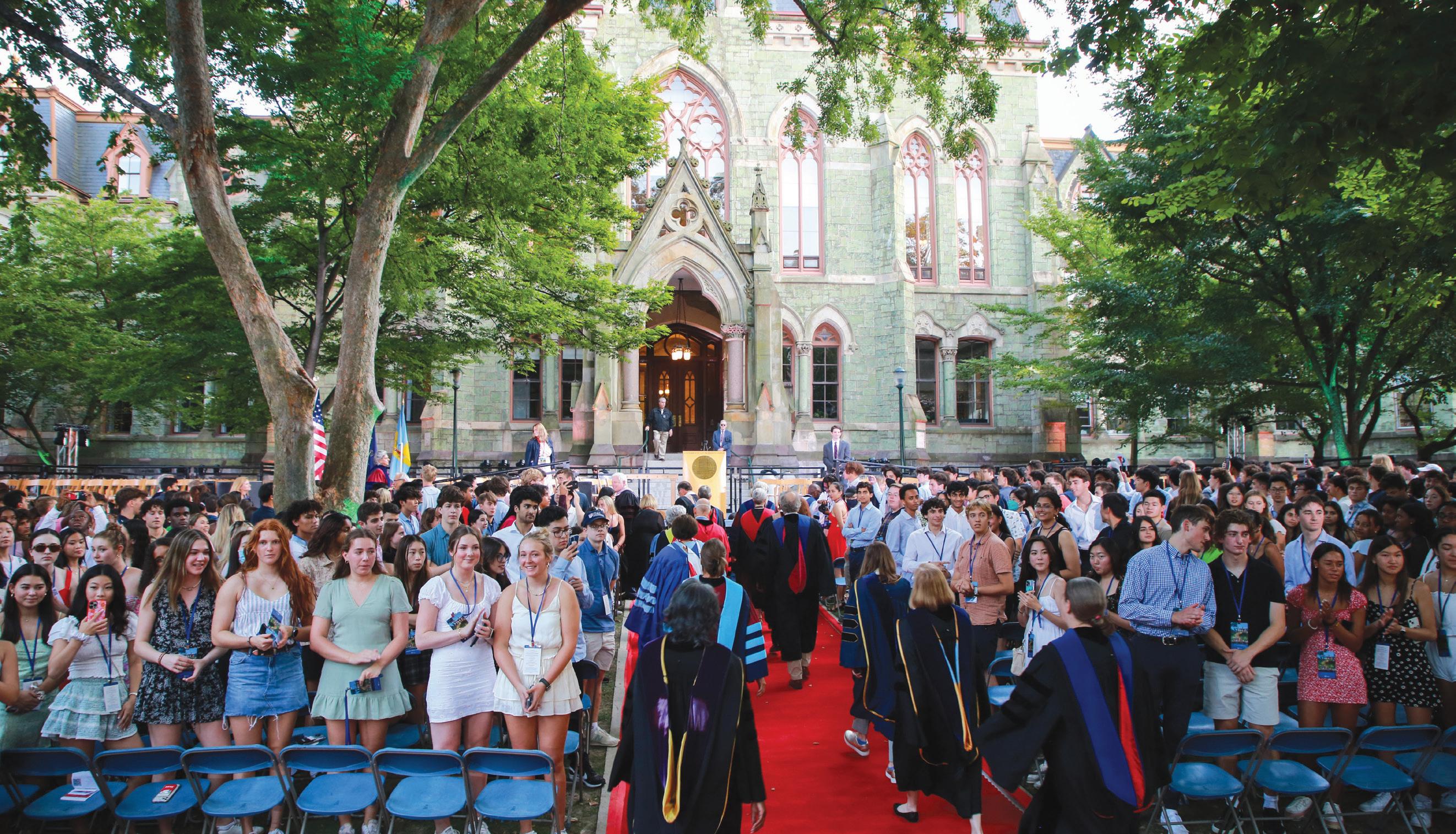
THROUGH THE YEARS
Biden, who emerged victorious in both Pennsylvania and nationwide.
After the Jan. 6, 2021 riot at the United States Capitol, Gutmann condemned the assault. Penn alumni — several of whom withheld their dona
tions from the University — also called for the school to revoke Trump's degree in response.
While Trump was impeached shortly afterwards, he was acquitted by the Senate. In the summer of 2021, Biden nominated Gutmann to serve as the U.S. ambassador to Germany.
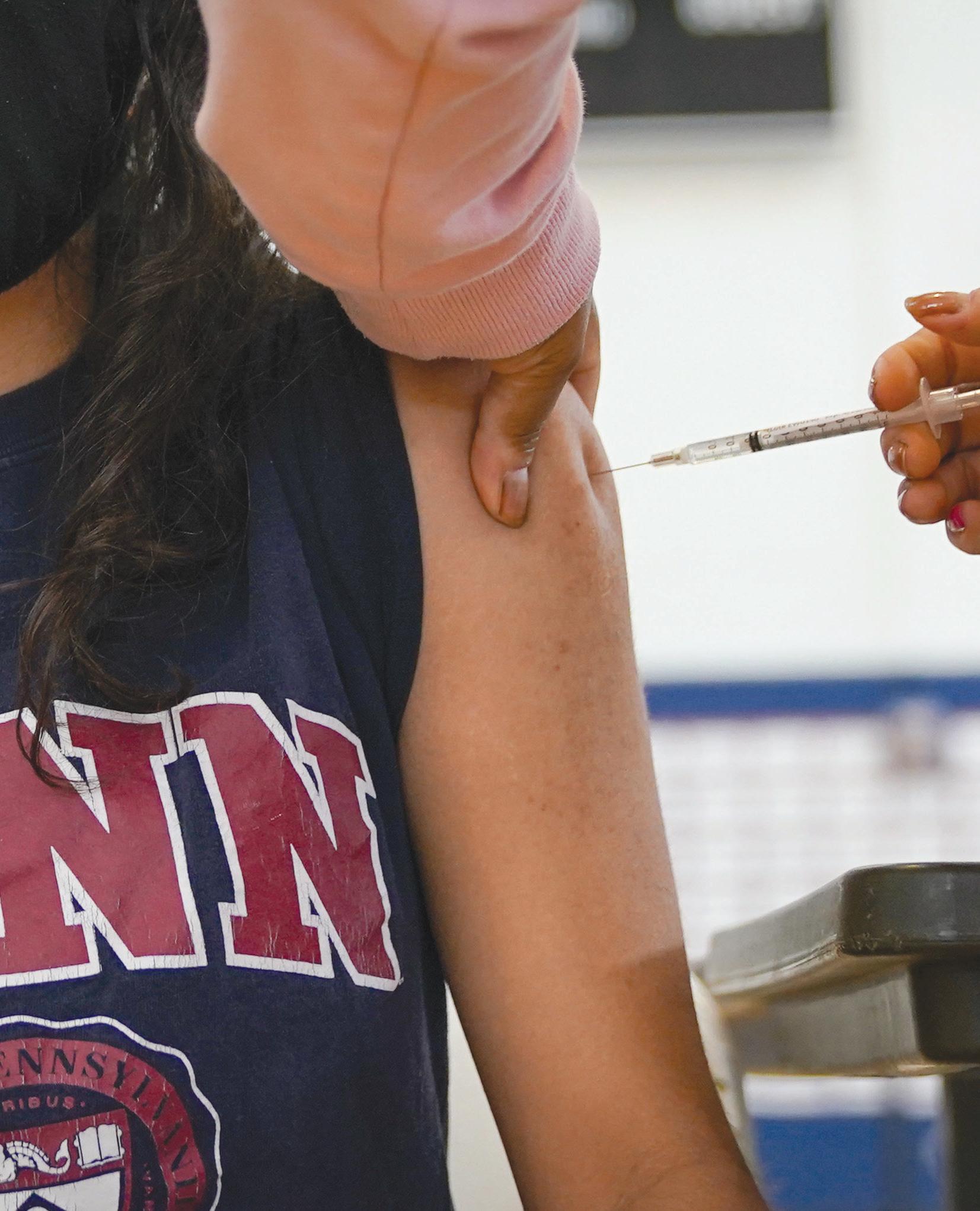
ADMISSIONS
The University’s admission rate for the Class of 2025 was 5.68%, down over two percentage points from the 8.07% acceptance rate from the year prior. The new figure marked the lowest acceptance rate in Penn's history, and
access to campus amenities, including the Pottruck Health and Fitness Center and Van Pelt Library.
Fully vaccinated students no longer had to undergo regular COVID-19 testing or mask indoors, though all students had to participate in gateway testing upon move-in. By October, 99% of Penn undergraduates had been fully vaccinated.
Penn also mandated that students receive a flu vaccine, hosting a flu clinic that vaccinated nearly 14,000 community members.
HOUSING AND DINING
In

Toward the end of the fall semester, the COVID-19 case count on campus began to rise — peaking with 241 community members testing positive between Dec. 12 and Dec. 18. Combined with the spread of the Omicron variant, the University made the second week of finals virtual and required all students to receive a COVID-19 booster by the end of January.
Penn also made the first two weeks of the spring 2022 semester virtual and reinstated indoor masking requirements until March. As a result, COVID-19 cases reached their lowest point during the semester in February. In April, Cheat Codes and Flo Milli headlined the first in-person Spring Fling since 2019.
PENN'S PRESIDENCY
In July 2021, President and former Penn professor Joe Biden announced his nomination of
of

ing game to
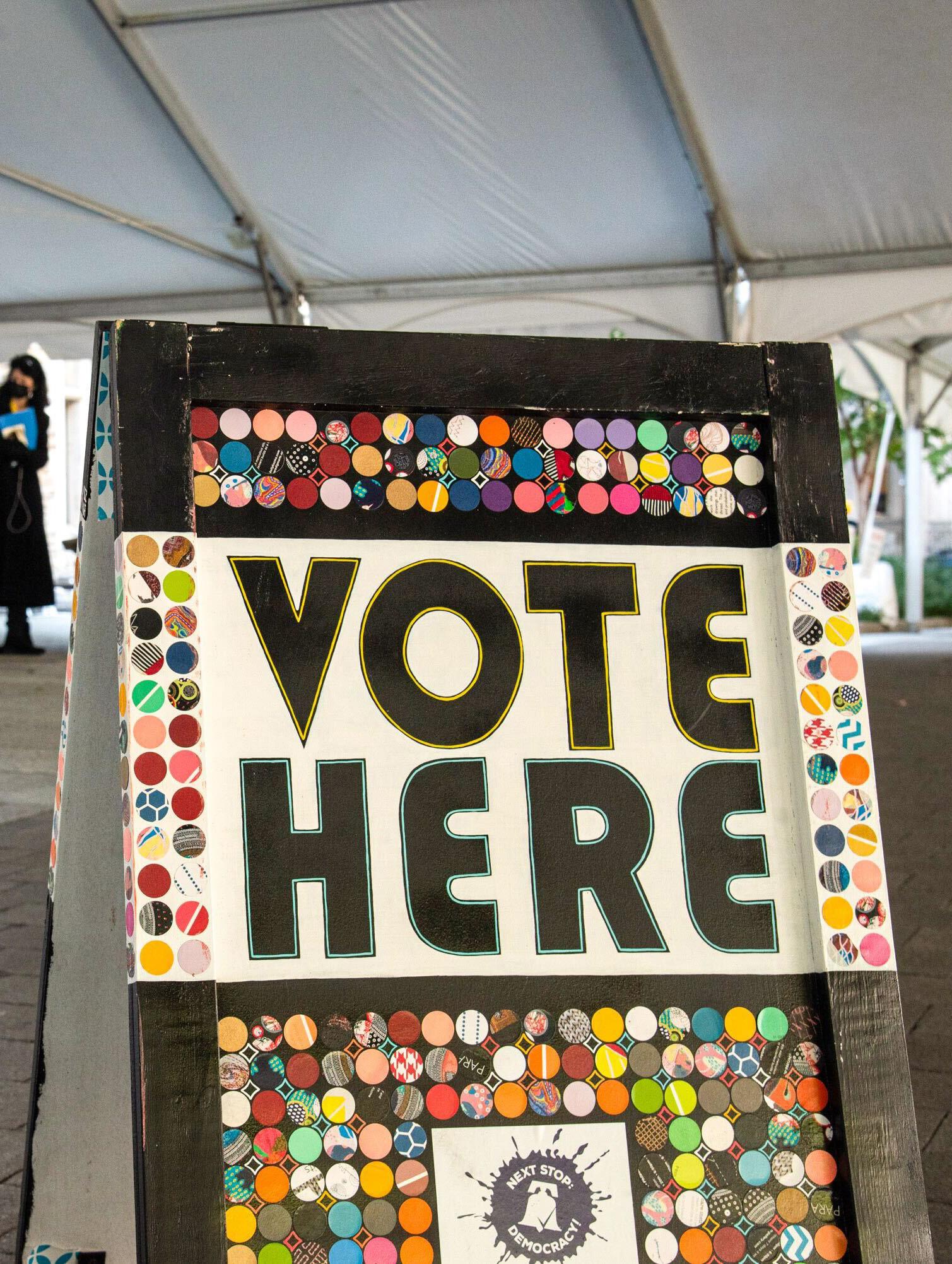
Penn President Amy Gutmann as the U.S. ambassador to Germany. By September, Penn had formed a committee to undergo a search for the University's next president.
Gutmann's nomination was confirmed by the Senate Committee on Foreign Relations on Feb. 8, 2022, and Liz Magill was announced as the University's next president. Provost Wendell Pritchett was selected as Penn's interim president, and Magill was unanimously confirmed by Penn's Board of Trustees before beginning her term as president on July 1, 2022.
CONTROVERSIES
The year was not without controversy.
In November 2021, The Daily Pennsylvanian reported on allegations of a toxic workplace environment in Penn's Gene Therapy Program. 11 employees alleged inappropriate office behavior and extreme work disorganization in interviews with the DP. University officials had also allegedly manipulated a Perelman School of Medicine investigation into the allegations to protect its own interests.
In January 2022, Penn graduate and former Rhodes Scholarship recipient Mackenzie Fierceton filed a lawsuit against the University for its inquiry into allegations that challenged her
administrators to meet student demands. Students for the Preservation of Chinatown — a coalition of college students in the Philadelphia area — held a campus-wide march in November opposing city officials’ plans to construct a new Philadelphia 76ers arena near Chinatown. Protests persisted into late March, culminating in a demonstration outside a University Board of Trustees meeting, in which students called for Penn to rupture ties to arena developers.
The year’s rise in student advocacy sparked broader examinations of free speech and open
at Gourmet Grocer, more peanut butter and jelly sandwiches, and more frequent made-to-order pasta at each dining hall. A winter investigation conducted by The Daily Pennsylvanian found that the Philadelphia Office of Food protection recorded 100 health code violations across Penn Dining locations. To address con
cerns following the failed inspection, Penn Dining implemented a new action plan to meet health and safety regulations.
In April, dining facilities began stricter enforcement of their policy requiring students to present their PennCards prior to entering different dining facilities. The policy prevented students
NATIONWIDE CONTROVERSY
In September, the Palestine Writes Literature Festival sparked outrage among some students, alumni, and national Jewish organizations who alleged that certain event speakers had made antisemitic remarks.
In a Sept. 12 statement, then-Penn President Liz Magill wrote that several speakers “have a documented and troubling history of engaging in antisemitism by speaking and acting in ways that denigrate Jewish people,” adding that she unequivocally condemned antisemitism.
In response, some faculty members called on Magill to amend the statement to clearly support a diversity of views and communities on campus, and Arab and Palestinian affinity groups defended the festival as "a long-awaited affirmation of their belonging and worth."
On the day of the festival, Penn Hillel held a Shabbat Together event to promote Jewish unity following several antisemitic events on campus, including vandalism of Penn Hillel and a swastika discovered at Meyerson Hall. Concerns about antisemitism on campus — and the University’s response — intensified after Hamas’ Oct. 7 attack on Israel. Members of Penn’s Board of Trustees, who had expressed concern about Penn’s response to the festival, called for Magill and Board of
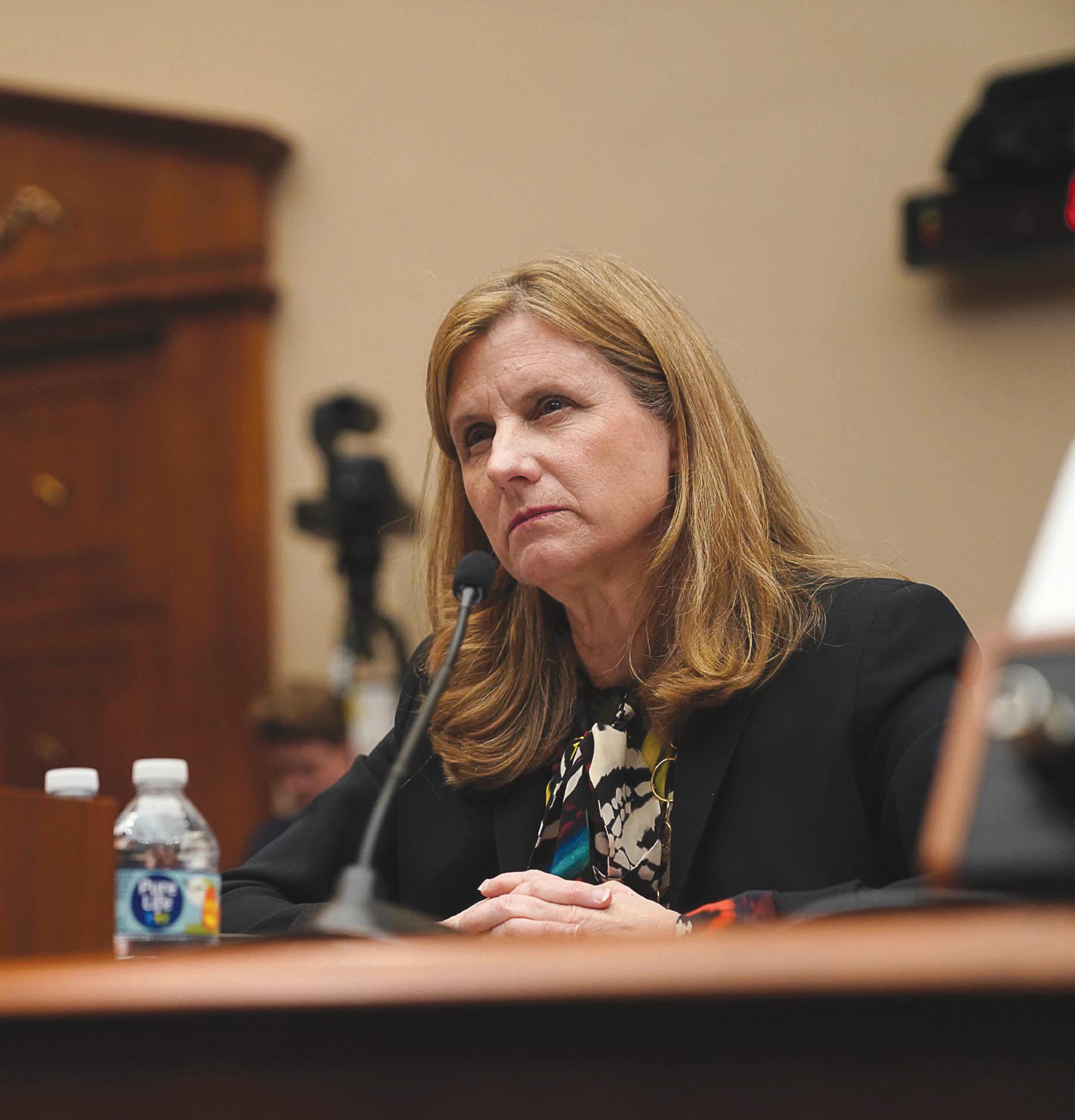
2023

April. Additionally, fall of 2022 marked the first time that Kite and Key tour guides were compensated for their work across campus. Amid ongoing policy changes under Dean of Admissions Whitney Soule, the DP spoke to alumni, students, and college administrators about updates to the preferential treatment of legacy applicants. Jordan


-
the application cycle also featured the largest application pool in history.
debuting student-led virtual tours with the Penn Admissions Office in the 2019-20 academic year, the Kite and Key Society, Penn’s tour guide group, continued to offer them throughout the 2020-21
Ivy
1987 College graduate Eric Furda resigned after 12 years
late 2020. He was replaced in an interim capacity
Vice Dean
Director of Admissions John McLaughlin,
was replaced permanently by Whitney Soule — who formerly worked as Bowdoin College's senior vice president and dean of admissions and financial aid — on July 2. COVID - 19 Penn administrators closed campus in fall 2020 two weeks before students were scheduled to move in. With the change, classes were moved online and campus buildings were closed for the semester. While campus itself was closed for the fall semester, many students decided to live in offcampus housing in West Philadelphia regardless, and Penn offered COVID-19 testing to students living near campus during the semester. According to Penn's COVID19 testing, case counts peaked in October 2020, with 3.3% of undergraduate students testing positive and 107 community members contracting COVID-19. Although classes remained virtual, campus housing reopened in the spring semester. While the campus’ semester-long positivity rate was 0.61%, it spiked during February 2021, increasing to a 4.47% positivity rate. Positivity rates fell to 0.09% by the final week of the semester. Penn offered COVID-19 vaccines starting on April 14, 2021, and required them for students to return for the fall semester. POLITICS The 2020 presidential election featured two candidates with strong connections to Penn, as 1968 Wharton graduate and incumbent Donald Trump faced off against Benjamin Franklin Presidential Practice Professor Joe Biden. The election featured record voter turnout on Penn’s campus, with 689 ballots cast between three on-campus voting sites, including the participation of former Penn President Amy Gutmann and her husband. Before the election, Pennsylvania was widely expected to be a critical swing state which could decide the victor. 83% of ballots cast on Penn's campus were for 12 NEWS THEDP.COM THE DAILY PENNSYLVANIAN NEWS FRIDAY, MAY 17, 2024 - GRADUATION ISSUE THEDP.COM THE DAILY PENNSYLVANIAN GRETTA MAGUIRE, NITIN SESHADRI, CHLOE NORMAN, AND NEEMA BADDAM Senior Reporters
2020-2021 2023-2024 The Class of 2024's four years at Penn COVID - 19 The fall 2021 semester was the first to have fully in-person classes since the start of the COVID-19 pandemic. Students also regained STUDENT ADVOCACY Throughout the 2022-23 school year, Penn witnessed heightened student activism across campus in the form of major demonstrations and a multiweek encampment. Many student-led protests sought to halt University expansion into the wider Philadelphia area. In August, around 100 protesters interrupted former Penn President Liz Magill’s Convocation address to denounce Penn’s alleged role in the displacement of University City Townhomes residents. In the fall, students continued to voice their dissatisfaction with a diverse range of University policies. Holding a five-week encampment on College Green, members of Fossil
-
-
After
school year. They were the first
their kind within the
League. Dean of Admissions and
in
by
and
and
Free Penn called for University divestment from fossil fuels, support for UC Townhomes’ pres
ervation, and payments in lieu of taxes to Philadelphia public schools. In late October, protesters involved with FFP stormed Franklin Field during the annual homecom
push University
Trustees Chair Scott Bok to step down. Dozens of major donors pulled their funding in protest of University leadership, including Wharton Board of Advisors Chair Marc Rowan, 1987 College graduate Jon Huntsman Jr., and 1965 Wharton graduate Ronald Lauder. On Nov. 1, Magill announced a University-wide action plan to fight antisemitism that was met with mixed reactions from both Jewish and Palestinian community members. The plan came amid heated debate over academic freedom on campus, with an open letter signed by hundreds of faculty across the country calling on Penn to defend faculty, students, and staff who were facing harassment for their proPalestinian views. Over 20 members of the United States Congress sent a letter to Magill on Nov. 7 criticizing the University’s response to Hamas’ attack on Israel. Shortly after, the U.S. Department of Education announced and the Massachusetts Institute of Technology about antisemitism on college campuses. Magill received national criticism over the testimony, in which she said that it was “context JINTONG WU | DP FILE PHOTO CHASE SUTTON | DP FILE PHOTO 2021-2022 status as a first-generation, low-income college student and a survivor of abuse. Penn had placed her master's of social work degree on hold, but lifted it in April following public outcry. University of Pennsylvania Carey Law School professor Amy Wax made inflammatory comments about Asian Americans and immigration, resulting in Penn Carey Law Dean Ted Ruger beginning the ongoing University sanctions process against Wax in January 2022 to determine if she had violated standards of behavior. KYLIE COOPER | DP FILE PHOTO expression across college campuses. Amid debates over Penn’s interpretation of open expression guidelines, The Daily Pennsylvanian spoke with University administrators and student activists
the
rights to free expression.
about
guidelines’ implications for students’
and seniors were placed on a waiting list for on-campus housing, inciting uncertainty among students as they waited for a randomized housing assignment. Penn Dining diversified its food offerings in response to student feedback. New menu items included breakfast smoothies, all-day breakfast sandwiches
August 2022, the Board of Trustees voted to enter into a three-year lease with The Radian to provide upperclassmen housing amid ongoing renovations to the Quad. More than 700 rising juniors
-
from using excess swipes to grant their peers access to certain dining locations, inciting backlash from some who criticized the policy as excessively restrictive. The DP evaluated alternative cuisine offerings outside the Penn dining plan, examining retail options in University City ranging from local food trucks to Bring-Your-Own restaurants.
ADMISSIONS
appli-
in Penn's history,
over 59,000 students applying for a spot in the
of 2027. Despite a
-
declined
admit rate
admitted class.
lifted enrollment
incoming
the need for students to pay part of their tuition prior
start of the fall se -
all-day pro -
hundreds
ad-
visited
mid
JESSE ZHANG | SENIOR PHOTOGRAPHER
Pascucci assumed her role as Penn's new vice dean and director of admissions in March 2023 following John McLaughlin’s resignation.
Supreme
affirmative
college
court ruling
Jackson
re -
diverse academic community
that
law. Magill resigned
Penn president
Dec. 9 amid mounting pressure, and Bok resigned as Board of Trustees chair shortly after. Larry Jameson — executive vice president of the University of Pennsylvania for the Health System and dean of the Perelman School of Medicine — stepped in to serve as the University's interim president on Dec. 12. In January, the House Committee on Ways and Means opened its own investigation into the University, asserting that its leadership has failed to comply with the anti-discrimination laws that make Penn eligible for tax exemptions. STUDENT DISSENT AND ACTIVISM Throughout the year, Penn students organized for various causes and leveraged criticism at University leadership. On Nov. 14, the Freedom School for Palestine — a self-identified collection of Penn students, faculty, staff, and alumni — occupied the ground floor of Houston Hall and began a multi-day teach-in to protest the University’s response to the Israel-Hamas war. The demonstration was the first of many from the group, which included “study-ins” in Van Pelt Library that resulted in disciplinary action for involved students. In February, an investigation by the Daily Pennsylvanian found that the Wharton Graduate Association allegedly withheld $90,000 promised to charity from its annual Penn Fight Night event. As a result of the scrutiny, the Graduate and Professional Student Assembly approved less funding than usual for Penn Fight Night and placed several conditions on its financial support of this year’s event in April. On March 19, the demolition of the University City Townhomes began after delays and criticism from community activists. The demolition, which was not publicly announced ahead of time, surprised community members. On April 22, in interviews with the DP, eight individuals close to the Penn rowing program described a pattern of racist remarks made by members of the men’s lightweight rowing team, as well as an allegedly inadequate response to these incidents by the University. On April 25, following many other universities across the country, pro-Palestinian activists began an encampment on Penn’s College Green. The group — which includes a mix of students and Philadelphia community members — called for the University to disclose its investments and divest from companies with ties to Israel, among other demands. After two weeks of programming, rallies, and negotiations with administrators — while facing pressure from the University to disband — the Gaza Solidarity Encampment expanded to the other side of College Green. Six student organizers were also put on mandatory leaves of absence and referred to Community Standards and Accountability. On May 10, Penn Police officers in riot gear, with the assistance of Philadelphia Police, arrested 33 individuals at the encampment and cleared the tents from College Green. Nine of those arrested were Penn students.
Penn also had tangible connections to candidates for both local and national political offices. In November, Pennsylvania held its general election, in which Philadelphia elected 2016 Fels Institute of Government graduate Cherelle Parker as the city’s 100th mayor. University of Pennsylvania Carey Law School lecturer Neil Makhija was also elected as the next Montgomery County commissioner, becoming the first-ever Indian American to win the seat. President Joe Biden appeared in headlines several times this year, including for evidence that he intentionally retained classified documents during his vice presidency — some of which were held at the Penn Biden Center. A DP investigation into two separate occasions of December 2018 and March 2019 also found that Biden discussed the status of his granddaughters’ applications to Penn with then-Penn President Amy Gutmann and then-Dean of Admissions Eric Furda. Meanwhile, 1968 Wharton graduate Donald Trump appeared in court in April for his criminal hush money trial — the first-ever criminal trial against a former United States president. Now the presumptive Republican nominee, Trump was also ruled eligible for the Colorado and Maine primary ballots in a March 4 U.S. Supreme Court decision after controversy over his “overt, voluntary” participation in the Jan. 6, 2021 Capitol riot, among other concerns. In Pennsylvania’s primary in April, Biden overwhelmingly won the state with the support of 93.1% of Democratic voters who cast their ballot for a listed candidate. However, he received only 63.7% of votes cast across the three polling locations on Penn’s campus — with 28% of voters choosing to write in a candidate. Trump won Pennsylvania’s Republican presidential with 83.5% of the vote.
COOPER | DP FILE PHOTO JESSE ZHANG | SENIOR PHOTOGRAPHER ANNA VAZHAEPARAMBIL | SENIOR PHOTOGRAPHER ABHIRAM JUVVADI | PHOTO EDITOR HANNAH SHUMSKY | STAFF PHOTOGRAPHER 13
witnessed the largest number of
cations
with
Class
record-breaking admis
sion cycle, Penn
to reveal the
and demographic data of the
Penn also
deposits for
students, eliminating
to the
mester. Penn Admissions reinstated
gramming for Quaker Days, as
of
mitted students
campus in
2022-2023
Additionally, Penn prepared for the possibility of the
Court’s overturning of
action in
admissions. After the
in June, Magill and Provost John
Jr.
leased a statement emphasizing the importance of a
while saying
Penn would fully comply with the
as
on
POLITICS
KYLIE
Dear sports
Esther Lim | My favorite view will always be from the stands
ESTHER LIM Senior Columnist
I remember when I first watched your white net snap taut from a goal scored. Seeing the plus one on the scoreboard felt just like that rush I feel when the music is perfect and I row into top gear. I knew I’d return for the next few matches at home. Even when the evening trains would rumble across the bridge behind Rhodes Field, and their terrific chug would drown out announcements of player substitutions that I really needed to hear, I was delighted I was the one to be there — soles suctioned to metal bleachers, fingers chilled stiff, and eardrums blitzed by bursts of crowd noise — to witness and write about it all. I loved my postgame sprints across the field to the home bench, holding two phones on record just in case one wouldn’t be enough to catch every word of my interviews. I remember how the beginnings felt so unfamiliar, meeting and asking questions to names I’d already scrutinized from stat sheets and rosters. But any nerves sank when I remembered how much fun it was to talk about you. I loved watching all the ways you could move. Heels anchored into grass and how spines would pivot, or squeaks of sneakers on glossy hardwood below century-old Palestra rafters. I loved how it would all happen so fast. A baton pass as fluid as turning a page of a book, or the ferocious swings of rackets and sticks and bats to mash a bulleting ball. I sought the best words to capture you on the page. You showed no fear and I wanted to feel that way, too. So I plunged into your momentum and kept up. I studied score sheets and rosters like homework. I squinted across courts and fields; memorized the numbers on players’ backs until I could predict the timings of coaches’ substitutions. I loved catching you off-guard to hear my favorite response: “That’s a great question.” And when anyone would begin to explain to me the game I knew I loved, I learned to straighten my shoulders and interrupt.
I spent some years matching your pace. In return, you drew some of the best words out of me. Watching my bylines stack was a thrill I’d share constantly with home, and it felt unreal to think how many people would read my work the next day. But you are rapid. Your routines kept rolling, and my writing grew mechanic. Obligations heaped. Your schedules began to weigh like an anchor on my joy, and what I had feared most would happen finally caught up to flatten my spirit: I grew tired.
But I wasn’t tired of you. I will always love being obsessed with you. ESPN still overwhelms my notifications, and I’ll hopefully watch you in a London stadium soon. Maybe I grew tired of knowing you so hard. Making my living in this city became an urgent test, and I rationed my time to be able to live. I didn’t want you to feel like
work, too.
I wondered what kind of writer you wanted me to be. What it takes to be the first to break news, to understand every sport as much as my favorite, to learn generations of legendary names I didn’t grow up with. I watched those around me do it excellently. I wondered if we all shared the same amount of hours. But reality had crashed into me like a wave, and when I finally learned how to keep my chin above the surface, I found no energy left to write you in my best words anymore.
I remember on another sunny afternoon at work, while rolling crates of silverware and counting down my hours on the clock, I watched you through a dim, cracked phone screen showing the 2022 World Cup. At every goal scored, I could hear the roar of cheers from the opposite side of the kitchen pass — occasionally delayed, but nevertheless electric, even through the brunch noise. Here was that delight, again, in a place I didn’t expect. I thought about the stories I had wanted to share when I first began writing. And watching you through a smaller screen, I wondered if my distance from your bigger headlines demanded something much greater than what I could give — a distance I wasn’t confident I could close.
So call me lazy or stale, unambitious at most. But I felt happy when I went to a soccer game with nothing to write. This wasn’t work, but a passion enjoyed. No deadline to race, no weaving of nuanced questions for interviews, nor a fiery stance on zonal marking versus man-to-man to prove I know what I’m talking about. I stood in the stands as just a fan of you. I rooted for a side, ignored the names of away team substitutions, and the delight of you returned.
I couldn’t become that trailblazer you craved. But now I’ll settle for the gallery afar, watching you continue to flourish for your favorite kind of crowd. So let me flourish, too. I won’t give all my words to you anymore — even if everything about you seemed so ideal in those evening hours, when the sun would set over the Schuylkill as the timeclock inched down, and the players on the field continued to just run, chasing you and one another into the back of that white net, and I was the one there to write about it all. You were a thrill unmatched, even as my own feet stood still. So perhaps I’ll return to you sometime soon, when I’ve grown a little more in myself, and my view from the stands calls again to spill out into words.
ESTHER LIM is a College senior studying English with a concentration in creative writing from Georgia. She served as a sports editor on the 138th board of The Daily Pennsylvanian. Her email is limestr@sas.upenn.edu.



Memories from the DP’s only section that matters
Matthew Frank |
If you’re reading this self-serving trip down memory lane, you might be one of my friends and family. Or, more likely, you’re trying to read about the encampment and got lost on The Daily Pennsylvanian’s website.
If you’re in the latter camp, just hit the menu button on the top left and go to news. And if you’re reading this in the physical paper … Who am I kidding, nobody actually picks up one of those. But if you’re one of my friends and family, I’m going to tell a story you might have already heard. Bear with me. While I was sports editor, a group of us made the seven-hour commute to Hanover, N.H., to cover a football game at Dartmouth College. At the time, we did a “Picks are In” column, where we’d predict each week’s game. All but one of our writers picked Dartmouth, who were 11.5point favorites.
Cut to: Penn somehow wins in double overtime, I’m in the process of writing what will become an extremely mediocre recap, and we’re sitting in a nearly empty press conference waiting to speak to Penn’s coach.
One of us eventually asked him, “What message do you think this win sends to the rest of the Ivy League?” While staring directly at us, he said, “I don’t think anyone gave us a chance today... People were writing stories without giving us Quakers a chance. So message: We are 3-0, ready to play another game next week.”
I checked. We were the only ones that had written a word about this game.
We, a group of 20-year-olds, had published something that pissed off a Division I football coach, and when we were proven wrong, he rightly told us to our faces.
It was completely fair for him — who, I should mention, is a very nice guy — to call us out. And it gets at a key aspect of college sports journalism: It can be very bizarre.
One time, I was covering a road football game from my room. I watched the game on TV, and a buddy of mine came in and watched with me. With 10 minutes to go, we were talking about a Penn running back that was tearing through Cornell’s defense.
“Oh yeah,” I said. “I’ll probably talk to him.”
I was on the phone with the running back a little over 10 minutes later. As my friend sat bemused on my couch, the guy who just charged through linemen on my TV was on the phone with me so I could mumble disjointed questions at him.
Again, bizarre.
Former Sports Editor Brandon Pride and I once traveled to New York for a baseball series at Columbia University. In the second game of the series, Penn blew a six-run lead in the last couple innings and lost on a walk-off homer. Rough way to lose. And rough for Brandon and me, who now had to talk to the coach about their collapse. We waited as the team emerged from the
dugout, terrified of having to confront a coach whose team just lost in the worst way imaginable. As he came out, we told him who we were, and he quickly exclaimed, “Oh wow, thanks for coming out, guys!” and couldn’t have been any nicer.
You never know what to expect from the people you’re interviewing. Like how you don’t expect Rick Pitino to tell you and the rest of a cramped postgame press conference about how the NCAA got its comeuppance in his infamous “ladies of the night” investigation.
But that’s part of what makes this very specific brand of journalism so great, and the memories I have from it are some of the best from my time in college.
After that Dartmouth game, we drove 45 minutes in the middle of the night to a place called “D Acres Permaculture Farm & Educational Homestead.”
If that sounds like it’s not a luxury hotel, you would be correct. I’d waited till the last couple days before our trip to book a hotel. Much to my surprise, it was Family Weekend at Dartmouth, which meant that all the hotels in Hanover were full. The only one available was D Acres, located more or less in the middle of nowhere. It was cheap, so D Acres had that going for it. We drove up around midnight to what looked like a haunted house, unsure if we’d end up sleeping in the car. To our surprise, it was actually quite nice. The room next to the kitchen was for butchering pigs, and you needed to pay with quarters to shower. But the beds were comfy, and we weren’t in a tent like the website suggested we might be.
For less than $60 a person, it was a good value. Plus, like many trips, it was a night with friends that I’ll never forget.
I’ve written over 120 articles for the DP (yikes), and although a couple of those were actually pretty good, it’s the memories and the friends that I’ll be most proud of and thankful for about my time in DPOSTM (The DP’s Only Section That Matters, for the uninformed).
I’m thankful for the guys on Sunday Shift™, for being the only reason I’d ever wake up before noon on a Sunday. And Jonah and the other nonDPOSTMites who made late nights in the office not so miserable.
I’m appreciative of my non-DP friends, for constantly putting up with my “Sorry, I can’t. I have a stupid DP thing” excuse, and my family, for reading everything I ever wrote.
And of course, I gotta thank Bill Simmons — that’s right, I’m ending on this — the reason I ever wanted to try this stuff in the first place.
MATTHEW FRANK is a College senior studying English from Miami. He served as a sports editor on the 138th board of The Daily Pennsylvanian. His email is mattusrl@sas.upenn.edu.
Complete the grid so each row, column and 3-by-3 box (in bold borders) contains every digit 1 to 9. Skill Level: Solution to Previous Puzzle: Check out page 9 for answers to this puzzle.











14 FRIDAY, MAY 17, 2024 - GRADUATION ISSUE | THEDP.COM THE DAILY PENNSYLVANIAN SPORTS
SUDOKUPUZZLE
College sports journalism can be very weird
MATTHEW FRANK Senior Columnist
SYDNEY CURRAN | SENIOR PHOTOGRAPHER
SYDNEY CURRAN | SENIOR PHOTOGRAPHER
find even more bountiful success, honoring his brother along the way.
Fencing — Bryce Louie
Winning a national championship is an honor few athletes can lay claim to, but Louie finds himself in the exclusive club after his NCAA title foil victory this past season. It was an all Red and Blue bout in the title match with Louise defeating fellow Quaker Blake Broszus, but in the end, it was Louie who earned immortality.
Louie’s victory at the championships marked the culmination of a career in which he steadily improved each season. He was selected to the Second-Team All-Ivy in 2022 with a record of 12-14, then earned a mark of 10-2 during his junior season. At the 2024 NCAA Championships, Louie dominated the field, winning 19 of his 23 bouts overall.
Louie’s exceptional individual performance also aided in an eighth place team effort for Penn. From a historical standpoint, Louie became the first national champion fencer for
the Quakers since 1997, a feat that will not soon be forgotten.
Squash — Nick Spizzirri
Being named a First-Team All-American is an honor most athletes can only dream of. For Spizzirri, it’s a habit.
Spizzirri was recently named to the prestigious group for the second time in his collegiate career, capping off a senior season that has seen him summit the squash world. Spizzirri was the top player on a Red and Blue team that brought home the program’s first national championship, while also reaching the semifinals of the CSA individual bracket.
Spizzirri went a combined 26-2 in team competition over his junior and senior seasons, demonstrating his consistency against the best players in the country. He was also undefeated in Ivy League play during his senior year. While Penn squash will continue to be one of the best programs in the nation, it will be difficult to replace a player of Spizzirri’s caliber.


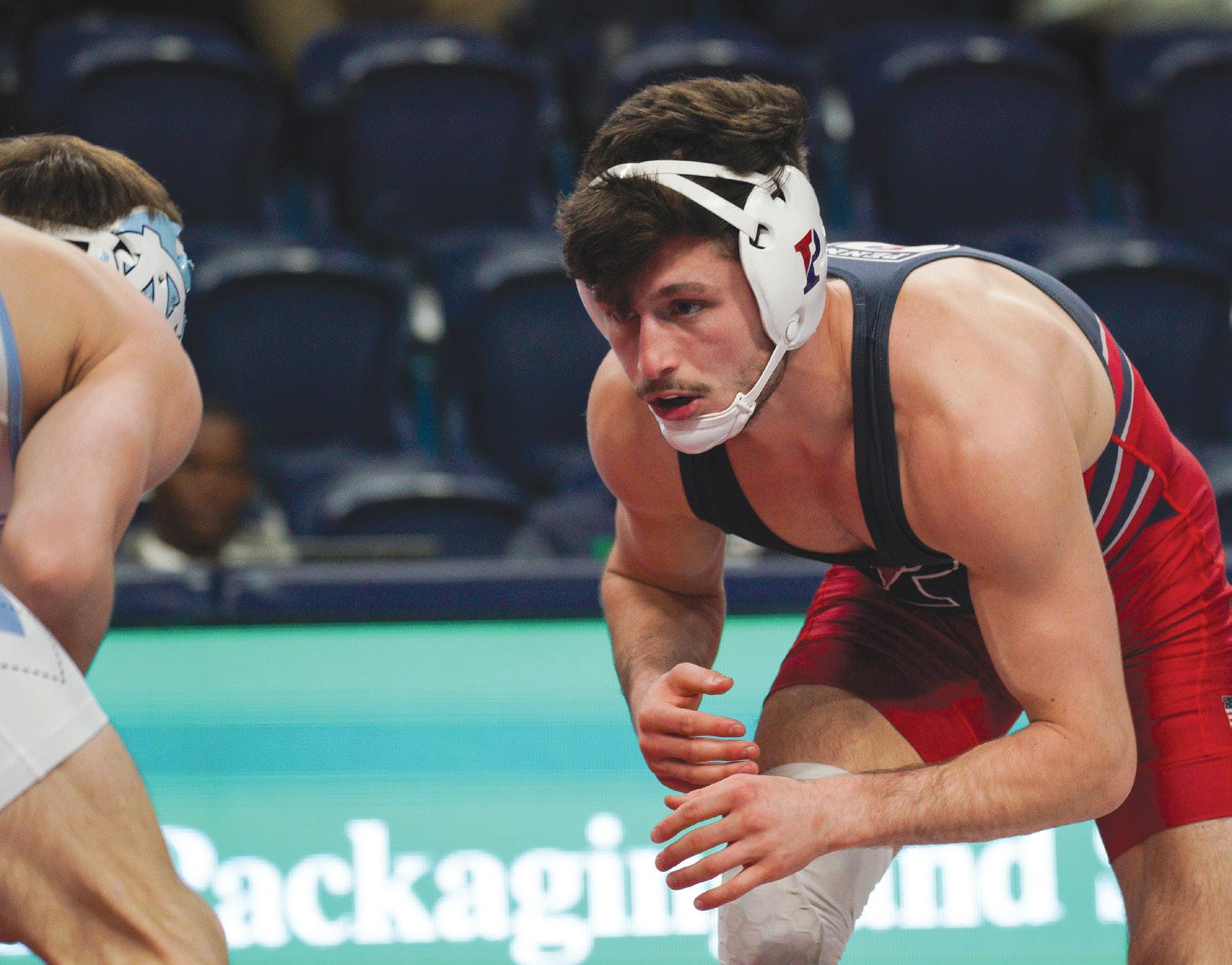
WOMEN, from BACK PAGE
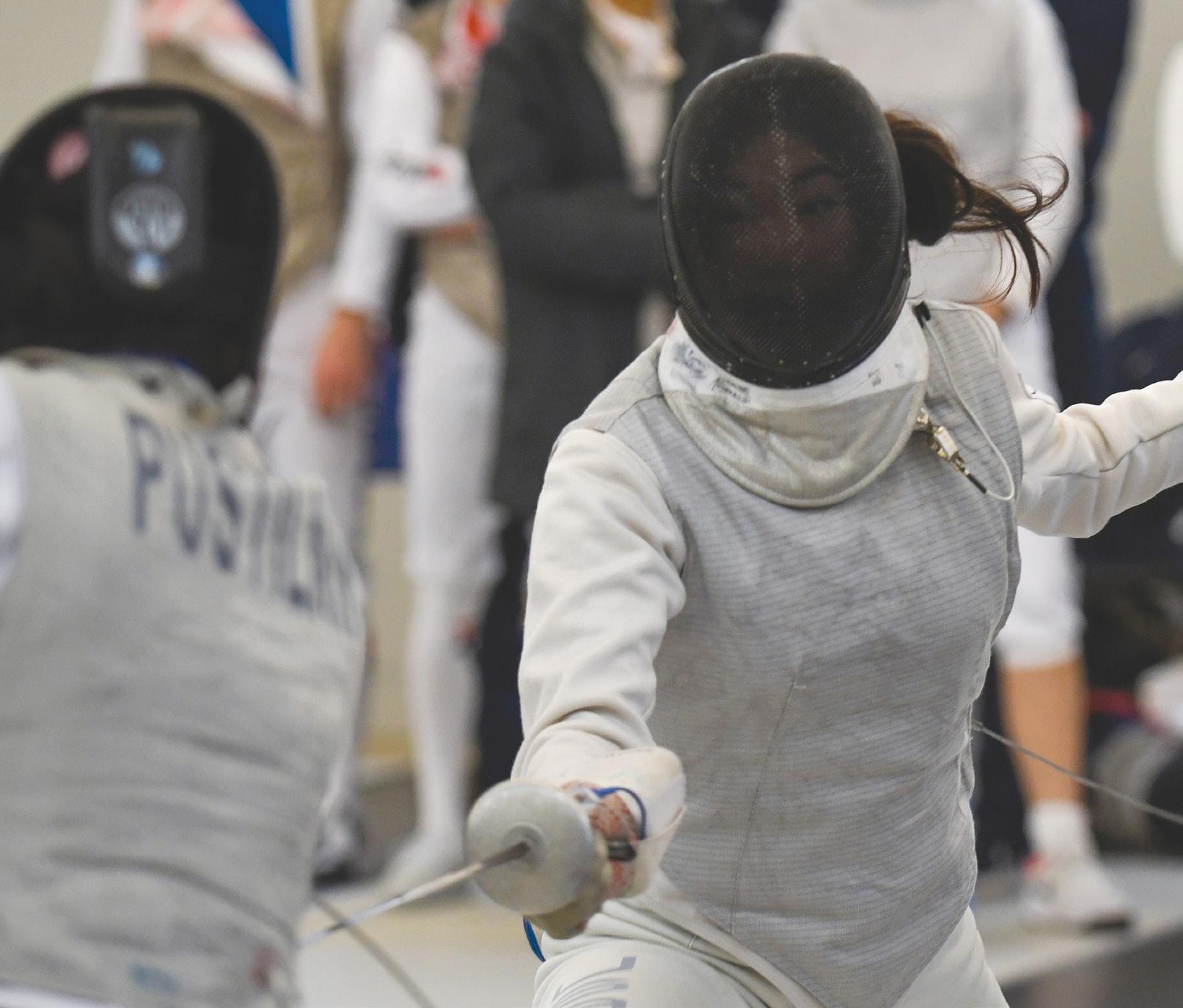
Ivy Heps Outdoor titles in the 4x100m relay and 4x400m relay. Whittaker once again returned to the NCAA Championships where she helped the 4x400m relay team finish in 16th place en route to claiming All-American status.
Like many other seniors, Whittaker saved her best for last. In her last year representing the Red and Blue, Whittaker set Ivy League records in the 400m and 500m races. At both the Indoor and Outdoor Ivy Heps, Whittaker took home first-place in the 400m and 200m races, guiding the women’s track and field team to first-place finishes at both meets. Whittaker’s performance at the outdoor Ivy Heps in the 400m was good for a meet record while her run in the 200m race set a new program record.
Whittaker is set to compete in the U.S. Olympic Trials later this year and will be taking her talents to Arkansas for her graduate year of eligibility.
Field hockey — Allison Kuzyk
Senior forward/midfielder Allison Kuzyk contributed instantly when she joined the program. In her rookie campaign, she was one of just three sophomores to play in all 16 games of the season, finishing third on the team in points scored and securing herself a place on Team Canada for the 2021 Field Hockey Junior World Cup. Her second season saw her garner two Ivy League Offensive Player of the Week honors en route to earning Second-Team All-Ivy recognition. Kuzyk finished second on the team in goals, which was also good enough to come in ninth in the Ancient Eight. Kuzyk was the only Ivy League player that season to score three goals in a single game.
Her senior year was arguably her most accomplished. Kuzyk was the co-recipient of the team’s Anna Townsend Award as MVP as she led the team in points and goals. She scored in seven straight games — good enough for the secondlongest scoring streak in program history. Her performance was more than enough to earn her First-Team All-Region, First-Team All-Ivy and PhillySIDA Academic All-Area recognition.
Fencing — Sabrina Cho
Senior foilist Sabrina Cho concludes her career with the Quakers after qualifying for the NCAA Division I Championships each year at Penn. In her rookie campaign, Cho finished 5th place at the NCAA Regional competition to earn herself Second-Team All Region honors. At the
NCAA Championships that year, Cho finished in 14th.
During her junior year and second season, she improved upon her previous performance, finishing sixth in the foil at the NCAA Championships, earning Second-Team All-American honors in addition to a First-Team All-Ivy selection. Her year was highlighted by a trifecta of 3-0 performances against Brown, Yale, and Harvard at the Ivy Round-Robins.
In her final season with the Red and Blue, Cho dominated, leading the program to its first Ivy League championship title since 2004 after finishing the competition 5-1. Cho once again competed at the NCAA Championships where her 11th place finish garnered her a second straight All-American honor. Cho’s consistent achievements at the top levels of the sport will be missed by the Red and Blue moving into future seasons.
Swimming & Diving — Anna Kalandadze Senior distance freestyler Anna Kalandadze was named The Daily Pennsylvanian’s Women’s Senior Athlete of the Year for a reason. After transferring from Berkeley ahead of her sophomore year, Kalandadze has absolutely dominated in the pool. Her first season with the Red and Blue saw her finish in second and third at the Ivy Championships in the 1,000-yard free and 1,650y free respectively, earning herself Second-Team All-Ivy honors. She also helped set a program record in the 800-yard freestyle relay. Her second season was an explosive one. She took home two individual Ivy League titles in the 500 and 1,650 free, setting both an Ivy and Penn record in the former with a time of 15:53.88. She also set a school record in the 400y individual medley en route to being named an Academic All-Ivy selection. At the NCAA Division I Championships, she finished in 10th place in the 1650, earning herself Second-Team All-American recognition. Her performance earned herself The DP’s Women’s Athlete of the Year that year. In her final season with the Quakers, Kalandadze did not slow down, headlining yet another dominant individual and team performance by the distance group at the Ivies. Kalandadze repeated as the Ivy League champion in both the 500 and 1650 free events. At the NCAA Championships this year, Kalandadze finished in fourth, placing in front of Olympians and previous NCAA champions. The senior will take the pool next at the US Olympic Trials to be held in June.

15 FRIDAY, MAY 17, 2024 - GRADUATION ISSUE THEDP.COM | THE DAILY PENNSYLVANIAN SPORTS
SAMANTHA TURNER | DP FILE PHOTO
Junior foilist Sabrina Cho parries an attack from Notre Dame’s Nicole Pustilnik during their bout on Jan. 22.
SAMANTHA TURNER | DP FILE PHOTO
Now-senior outfielder Brianna Brown loads her stance against Princeton on April 2, 2023.
COURTESY OF PENN ATHLETICS
MEN, from BACK PAGE
Senior squash player Nick Spizziri graduates in 2024.
ANNA VAZHAEPARAMBIL | SENIOR PHOTOGRAPHER
Junior Jimin Jung during the Cornell/Temple Fall Invitational at Plymouth Meeting on Sept. 18.
ANNA VAZHAEPARAMBIL | SENIOR PHOTOGRAPHER
Now-senior Michael Colaiocco leans in to grapple with UNC’s Jace Palmer during their matchup last season on Jan. 7.
SPORTS BEST OF GRADUATING SENIORS




With graduation right around the corner, here are the best graduating student-athletes in the Class of 2024 to
SPORTS
Baseball — Wyatt Henseler
Pitchers across the Ivy League will breathe a collective sigh of relief once Wyatt Henseler hangs up his Penn jersey for the final time. The all-time home run king, not just for Penn, but for the entire Ancient Eight, Henseler stands alone in terms of dominance at the plate – just ask any hurler who was on the other end of one of his 51 career homers.
Last season, Henseler was a critical cog in arguably the greatest team in Ivy League history. The 2023 Quakers won the Ivy League and defeated Auburn and Samford in the regional round of the NCAA Tournament, ultimately falling just one win short of becoming the ` Ancient Eight team to advance to a super regional. Henseler was crucial to the cause, racking up seven hits and a home run over Penn’s four tournament games.
Henseler was named First-Team All-Ivy in both 2022 and 2023, and will likely earn the same honor in 2024. After racking up a number of Penn and Ivy League records, including the program hits record and the conference RBIs mark, Henseler will spend his graduate year of eligibility at Texas A&M. From the Ivy to the SEC, Henseler owns every plate to which he steps.
Basketball — Clark Slajchert
Though Slajchert, a Southern California native, will return home and spend his graduate year of eligibility at USC, he made an indelible impact during his time in the Red and Blue. After facing significant adversity early in his career, including a canceled freshman campaign and a serious leg injury, Slajchert persevered through it all, eventually becoming the 43rd player in Penn program history to score 1,000 points.
Slajchert was a part of several notable Penn teams, including a 2023 group that went 9-5 in the Ivy League and fell to Princeton in overtime in the first round of Ivy Madness. Slajchert’s 17 points in that contest served as a preview of what was to come during his final campaign. Slajchert’s senior season saw him take the reins of the Quaker offense following the departure of 2023 Ivy League Player of the Year Jordan Dingle, and he delivered in every sense of the word. Slajchert led the Quakers with 18 points per game and shot 42% from three, earning Second-Team All-Ivy and First-Team All-Philadelphia Big 5 honors.
Football — Joey Slackman
When Slackman first committed to Penn in 2019, he did so as a wrestler, aiming to further his career in a sport he had won a state championship in during his senior year of high school with the belief that his football career may be behind him. Now, he leaves the Quakers as one of the school’s most decorated linemen.
After earning a spot on the football team and converting back to the gridiron, Slackman left a legacy of dominance at Franklin Field. During his senior season, he became the first Quaker since 2015 to win the Bushnell Cup, awarded to the Ivy League’s most outstanding players on offense and defense. Slackman was also named First-Team All-Ivy in 2023. Slackman’s 25 career tackles for loss and immense 6’4”, 300-pound frame made him a soughtafter target in the transfer portal this past winter, when he eventually committed to Florida for his graduate year of eligibility. Slackman became the first player to transfer from the Ivy League to the SEC in four years, and in his new conference, he will be better positioned to pursue his NFL aspirations.
Lacrosse — Emmet Carroll
Penn men’s lacrosse is one of the premier programs in the nation, and much of the Quakers’ success is thanks to their excellent play in the field. But none of it would be possible without the man who guards the net.
Carroll has racked up a decorated resume during his four years with the Quakers and was named to the All-Ivy first team as the conference’s top goalie during his senior year. His 6-foot-3 stature gives him the size necessary to defend a variety of attacks, and his play was critical to Penn’s success this season, which included a win over then-No. 1 Duke. Against the Blue Devils, Carroll racked up 17 saves at a 0.586 clip to help secure the Quaker upset. Carroll started all 29 of Penn’s games during his junior and senior seasons, and his 446 career saves are a testament to his consistency at the net.
Ttrack & field — Scott Toney
Toney, who will head to Washington next season for his final year of collegiate eligibility, is no stranger to lofty heights. His 5.54-meter personal best in the pole vault is good for ninth in the nation and second best in Penn program history, trailing only teammate James Rhoads, whom Toney has long competed with and against for Ivy League glory.
Before April’s Penn Relays, Toney expressed a desire for him and Rhoads to go “1-2” — take both of the top spots at the oldest meet in American track and field. And the pair did just that, dominating the field and making their mark as two of the nation’s best.
Toney often discusses the significance that the loss of his brother, Marc, plays in his career. At this season’s indoor Ivy League championships, Toney took first with a winning jump of 5.36. It would have been his brother’s 29th birthday. As his athletic career presses on, Toney will hope to
Blue
WOMEN’S SPORTS
Basketball — Jordan Obi
Senior guard Jordan Obi is one player who has had an instant impact on the team since donning the Red and Blue. After her freshman year was canceled as a result of COVID-19, Obi wasted no time in asserting her presence on the court her sophomore year. Obi was a three time Ivy League Rookie of the Week in addition to being the only Quaker to start and play in all 26 games that year. Her junior year, Obi would build on her early success, posting six double-doubles en route to leading the team in defensive rebounds and finishing second in scoring.
In her final year with the Red and Blue, Obi put together her best performance yet. In the team’s first matchup against Brown, Obi became just the 25th player in program history to tally 1,000 career points and the seventh fastest player to do so, having reached the mark after just 74 games. Obi captained the team to its second straight appearance in Ivy Madness where the Quakers were one missed referee call away from sending the game to overtime against the favorite, Princeton. Obi concludes her four years with the Red and Blue with 1,142 career points — good for 11th alltime in program history. Obi also nabbed First-Team All-Ivy and Academic All-Ivy honors after previously garnering Second-Team All-Ivy nods for her sophomore and junior campaigns. For her final year of collegiate eligibility, Obi will be making the move to Kentucky where she will be looking to turn around a program that finished 12th in SEC play this year.
Gymnastics — Sara Kenefick
Senior Sara Kenefick’s three-year career with the Red and Blue aligned with some of the program’s best performances. In her first year, Kenefick earned first-team All-GEC honors on floor and second-team All-GEC honors on the beam. Her first place floor performance with a score of 9.975 helped Penn clinch a Gymnastics East Conference Championship title. During that season, Kenefick was GEC Gymnast of the Week twice. In her junior year, she earned First-Team All-GEC honors once again on floor as the team won its second straight GEC Championship title. In her final season, Kenefick’s strong performances on floor and vault helped lead the team to its third straight GEC Championship. In this performance, this team scored a season-high mark of 196.275 to beat out seven other schools.
Kenefick finished in fourth in the all-around in a season that saw her named to the First-Team All-GEC team in both the all-around and floor while also picking up second-team All-GEC team honors in vault and uneven bars. This makes Kenefick the first ever Quaker to become a three-time First-Team All-GEC selection on floor.
Lacrosse — Izzy Rohr
Senior defender Izzy Rohr has quickly put together a career that will be hard for future Quakers to live up to. After missing 2022 due to injury, Rohr established herself as a main staple of the Red and Blue defense as she returned. Rohr was named the unanimous Ivy League Defender of the Year, unanimous Ivy First-Team All-Ivy selection, and to the Ivy League All-Tournament Team.
Rohr played a pivotal role on a Quaker team that went undefeated in the Ivy League and won the Ivy League tournament title after missing the tournament completely the season prior. She started in all 19 games and led the Ancient Eight in caused turnovers while ranking fourth in ground balls. Ahead of her senior season, Rohr was named a Inside Lacrosse Preseason Second-Team All-American and a USA Lacrosse Preseason Third-Team All-American.
In her senior season, Rohr once again was a dominant force on the defensive end of the field. Rohr became just the second Ivy League player to earn a second consecutive Defender of the Year title since the award was created in 2013 — the only other person to do so was former Penn defender Meg Markham in 2014 and 2015. Rohr once again led the league in overall caused turnovers in addition to caused turnovers per game, anchoring a defense that ranked eighth in the nation in caused turnovers per game and 10th in the nation in scoring defense.
Despite losing in overtime to Yale in the Ivy League tournament championship game, she was named to the All-Tournament Team and also picked up USA Lacrosse All-America Third Team recognition for her performances this year. The Quakers are still alive and well in the NCAA Division I Championships this year as they head to Evanston, Ill. to take on Northwestern in the quarterfinals. Rohr’s season will keep on going as the team eyes a deep run into this year’s tournament. Track and field — Bella Whittaker
Senior sprinter and The DP’s Women’s Athlete of the Year Isabella Whittaker has absolutely dominated during her time as a Quaker. In her first-ever meet, she set Penn’s second-best times in the 200-meter and 400m races. By the end of her first outdoor season with the Quakers, Whittaker would tie the program record in the 200m and set the program record in the 400m at the NCAA East Preliminaries. Her freshman campaign concluded with an Honorable Mention All-America nod after placing 24th in the 400m at the NCAA Championships.
During her sophomore season, she helped lead the Penn 4x400m relay team to three separate first place finishes, including at the Ivy League Outdoor Track and Field Championships. Individually, she took home the gold in the 400m at both the Big Five Meet and the Ivy League Outdoor Track and Field Championships. Her junior year was no less impressive, as she took home second in the 400m at the
League Heptagonal Indoor Track and Field Championships while claiming
CONTACT US: 215-422-4640 SEND STORY IDEAS TO DPSPORTS@THEDP.COM ONLINE AT THEDP.COM THE INDEPENDENT STUDENT NEWSPAPER OF THE UNIVERSITY OF PENNSYLVANIA • FOUNDED 1885 PHILADELPHIA, FRIDAY, MAY 17, 2024 VOL. CXL NO. 15
Ivy
two
VIVIAN YAO Sports Editor See WOMEN, page 15
WALKER CARNATHAN Sports Editor See MEN, page
MEN’S
15
have donned the Red and















































































































































